Namak Haram Drama Review – Pakistani television dramas always hold a special place in the hearts of audiences. Every season, viewers eagerly wait for a new story that brings together powerful emotions, thought-provoking dialogues, and characters that reflect real-life struggles. Among the many serials that have gained popularity, Namak Haram has emerged as one of the most talked-about projects on Hum TV. This review dives deep into every aspect of the serial, from its storyline and characters to its direction and themes, while keeping in mind how it resonates with both critics and audiences.
The first impression of Namak Haram already sets it apart from other dramas airing in the same slot. From the very first episode, the drama grips viewers with its intensity, powerful performances, and emotional depth. Unlike stories that rely only on romance or comedy, Namak Haram explores themes such as loyalty, betrayal, greed, family bonds, and justice in a way that feels both authentic and relevant. This is why the Namak Haram Drama Review has become a hot topic among drama enthusiasts who want to know whether it lives up to the hype.
The importance of reviewing a drama like Namak Haram goes beyond just entertainment value. A good review helps audiences understand what makes a story worth watching, how the cast members bring their characters to life, and whether the direction successfully captures the emotions that the script demands. This Namak Haram Drama Review aims to provide readers with a complete understanding of the drama while analyzing its strengths and weaknesses in detail.
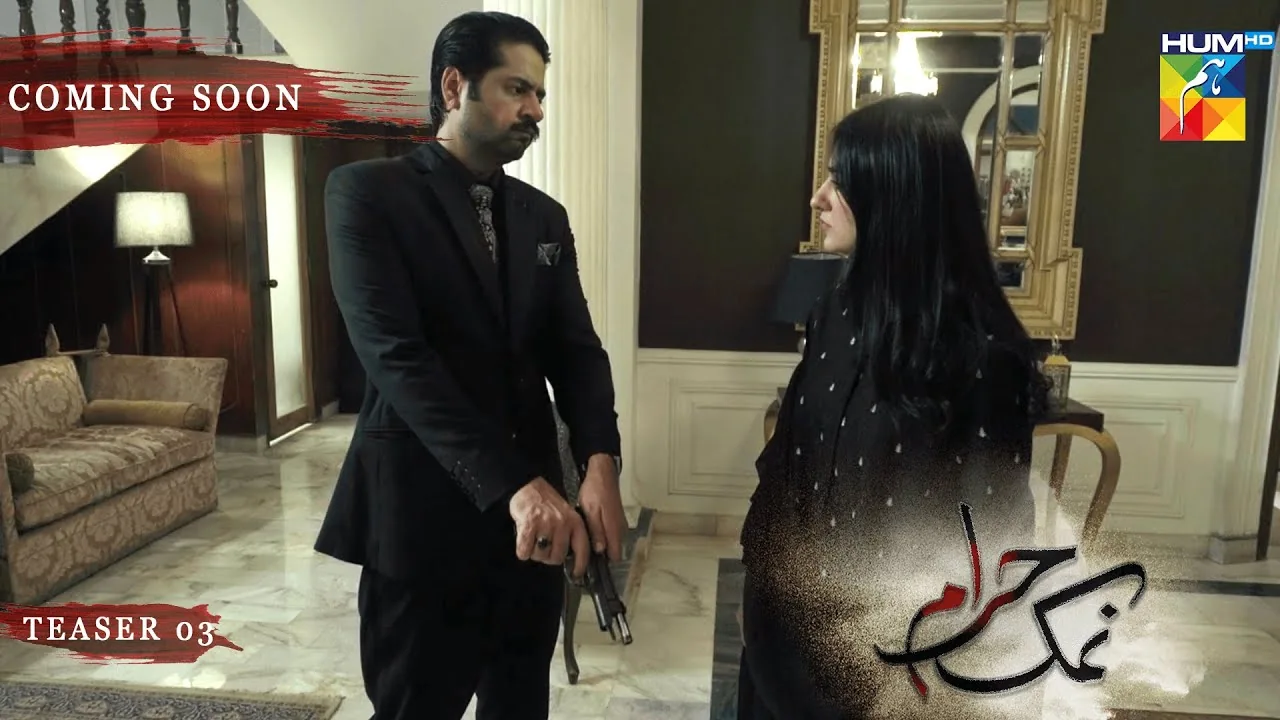
One of the major reasons why people look forward to dramas like Namak Haram is the star power of its cast. Featuring big names in the Pakistani entertainment industry, the drama already had high expectations before its release. When actors with strong reputations come together, audiences naturally expect a high-quality production. In this Namak Haram Drama Review, we will see whether the cast actually delivered performances that matched their reputations or if they fell short in certain areas.
Another factor that makes Namak Haram worth reviewing is its storyline. The drama doesn’t simply stick to a single theme but blends multiple social issues together. It asks important questions about human nature, explores the consequences of greed, and sheds light on how betrayal can damage even the strongest relationships. These layers of storytelling make it much more than a typical soap opera. By looking into the details, this Namak Haram Drama Review gives viewers insights into how the narrative develops and keeps audiences hooked from start to finish.
For many viewers, the technical aspects of a drama also matter. Direction, cinematography, pacing, and background score all play a huge role in determining whether a show becomes memorable or forgettable. In the case of Namak Haram, there has been a lot of discussion about how well the scenes are shot and how effectively the director balances emotional intensity with narrative flow. As part of this Namak Haram Drama Review, these technical elements will be examined closely so that readers can understand the overall production quality of the drama.
It is also essential to consider how audiences have responded to Namak Haram. After all, the success of any drama depends not only on critical reviews but also on how much it resonates with viewers. Social media platforms are filled with opinions, reactions, and debates about the show. Some praise the powerful storytelling and acting, while others raise questions about pacing or character development. In this Namak Haram Drama Review, we will highlight how the audience has received the drama so far and whether it meets the expectations of Hum TV fans.
The purpose of this review is not only to summarize the story but also to evaluate the drama from every angle. By analyzing the cast performances, narrative depth, themes, technical execution, and audience feedback, this Namak Haram Drama Review serves as a complete guide for anyone considering whether to watch the drama. It helps both casual viewers and serious critics make sense of the buzz surrounding the serial.
In the following sections, we will explore everything in detail, starting from the background information about how the drama was created, moving into a plot summary, and then breaking down each character’s role. We will also discuss the themes of loyalty, betrayal, justice, greed, and family dynamics. Additionally, we’ll evaluate the direction, cinematography, pacing, and overall strengths and weaknesses. Finally, this Namak Haram Drama Review will conclude with an honest verdict about whether the show stands out among the top Pakistani dramas of recent years.
In short, Namak Haram is not just another television serial—it is a story that sparks conversation and leaves audiences thinking about important issues. This Namak Haram Drama Review is designed to give readers the complete picture, making it easier for them to decide if this drama deserves a place on their must-watch list.
Background Information
Every drama carries a story behind the screen that is just as important as what unfolds on television. When it comes to the Namak Haram Drama Review, understanding its background information allows us to appreciate the hard work, planning, and creative vision that went into making this project a reality. Before analyzing the characters, plot, or direction, it is important to take a closer look at the origins of the drama, the team behind it, and the expectations it carried prior to release.
The drama Namak Haram is a production of Hum TV, one of Pakistan’s leading entertainment networks known for creating powerful serials that highlight social realities while entertaining viewers. Over the years, Hum TV has been responsible for some of the most iconic dramas in the industry, and with Namak Haram, the channel once again proves its commitment to delivering quality entertainment. This Namak Haram Drama Review would be incomplete without recognizing the strong platform that Hum TV provides for dramas to reach both local and international audiences.
Behind every successful drama is a talented creative team, and Namak Haram is no exception. The script was penned by a skilled writer who understands the intricacies of human emotions and social issues. Pakistani audiences have a deep appreciation for strong writing, and in the case of Namak Haram, the dialogues and story progression reflect both thoughtfulness and intensity. This Namak Haram Drama Review highlights that one of the strengths of the drama lies in its script, which avoids unnecessary fillers and instead focuses on developing a narrative that grips the audience from the very beginning.
Equally important is the director, whose vision transforms words on paper into living characters and meaningful scenes. The direction in Namak Haram shows a careful balance between dramatization and realism. In many Pakistani dramas, viewers often criticize directors for dragging scenes or focusing too heavily on melodrama. However, in this case, the director ensures that every moment serves a purpose in building the larger story. In this Namak Haram Drama Review, we must acknowledge that the director’s ability to maintain emotional depth while keeping the pace steady is one of the key reasons for its growing popularity.
Casting choices also play a vital role in shaping a drama’s success. Namak Haram features a lineup of talented actors who are known for their versatility and strong screen presence. Their involvement alone created a buzz before the drama even aired, as fans were eager to see how these actors would interpret their roles. This Namak Haram Drama Review emphasizes that casting decisions were carefully made to ensure that the characters appear authentic and relatable, which adds to the drama’s overall impact.
Another aspect of the drama’s background that cannot be ignored is the timing of its release. Pakistani television often schedules dramas strategically, ensuring that major projects air during seasons when viewership is at its peak. Namak Haram was launched at a time when audiences were looking for something meaningful and intense, which gave it an edge over lighter dramas airing on other channels. This Namak Haram Drama Review acknowledges that timing played an important role in ensuring that the drama attracted the attention it deserved.
From a production perspective, the drama showcases high-quality sets, costumes, and cinematography. These elements create an atmosphere that makes the story more believable and engaging. The background locations are carefully chosen to reflect the social class and circumstances of the characters, while costume design ensures that the characters feel realistic rather than overly glamorous. This attention to detail shows that Namak Haram is not just another routine production but a drama crafted with dedication.
It is also important to consider the marketing and promotion that contributed to the drama’s initial success. Before its release, teasers and trailers were shared widely across social media platforms, sparking curiosity among viewers. Many fans discussed their excitement online, predicting the storyline and speculating about the roles of their favorite actors. In this Namak Haram Drama Review, we must point out that the promotional campaign helped build anticipation, which translated into strong initial viewership ratings.
Lastly, the cultural context of Pakistani society also forms part of the drama’s background. Dramas in Pakistan are not just a source of entertainment; they often reflect societal issues, family structures, and moral lessons. Namak Haram taps into universal themes such as loyalty, betrayal, and justice, but presents them in a uniquely Pakistani setting. This is why the Namak Haram Drama Review resonates with such a wide audience—it combines relatability with drama in a way that captures real struggles while still keeping viewers entertained.
In summary, the background of Namak Haram reveals a carefully designed project that was destined to attract attention. With Hum TV’s strong platform, an experienced writer, a visionary director, a talented cast, and timely promotions, the drama had all the ingredients needed to succeed. This Namak Haram Drama Review shows that before the first episode even aired, the groundwork had already been laid for it to become a standout serial. By understanding its background, we can now appreciate the drama’s storyline, performances, and themes even more deeply.
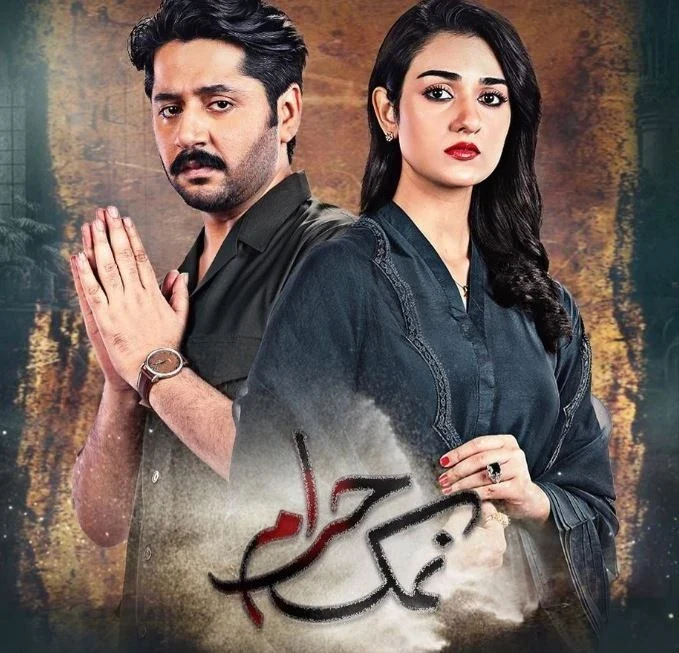
Plot Summary
The heart of every drama lies in its storyline, and in the case of Namak Haram, the narrative unfolds with gripping intensity that keeps audiences hooked from the very beginning. To present a clear Namak Haram Drama Review, it is important to outline the plot in detail, showing how the story develops, what twists occur, and how the characters’ journeys reflect deeper themes of loyalty, betrayal, greed, and justice.
At its core, Namak Haram tells the story of two families bound by complex relationships, secrets, and power struggles. Unlike many dramas that rely solely on romance, this serial introduces viewers to a layered narrative where every character’s decision impacts the overall outcome. The plot begins with the introduction of the main characters, each of whom represents a different shade of human emotion. From the ambitious to the vulnerable, from the loyal to the deceptive, the drama paints a vivid picture of society where moral choices often clash with personal desires.
The drama opens with a focus on the leading characters who, at first glance, seem like ordinary individuals facing everyday challenges. However, as the story unfolds, the audience begins to realize that beneath the surface lies a web of hidden agendas and emotional struggles. This Namak Haram Drama Review highlights that the writers were deliberate in building the narrative slowly, allowing viewers to connect with the characters before exposing them to the larger conflicts.
As the story progresses, themes of loyalty and betrayal take center stage. Relationships that appear strong at the beginning begin to show cracks as circumstances test the characters’ patience and integrity. One of the most powerful aspects of Namak Haram is how it portrays betrayal not as a sudden twist but as a gradual process influenced by greed, jealousy, and mistrust. This careful buildup makes the betrayals feel authentic rather than forced, giving the drama a sense of realism often missing in televised stories.
A key turning point in the plot comes when power dynamics shift within the families. Wealth, influence, and hidden secrets begin to shape decisions, leading to confrontations that change the course of events. The characters are forced to choose between morality and self-interest, and many fall victim to greed. In this Namak Haram Drama Review, it is essential to note how the drama successfully uses these moments to explore the consequences of unethical decisions. Rather than glorifying materialism, Namak Haram shows the destructive outcomes of prioritizing greed over values.
The romantic elements of the story add another layer of complexity. Unlike typical love stories where everything revolves around the couple, here romance is intertwined with family dynamics and societal expectations. Love becomes both a source of strength and vulnerability for the characters. Sacrifices are made, misunderstandings arise, and the drama portrays how emotions can either heal broken relationships or push them further apart. This Namak Haram Drama Review acknowledges that the romantic subplot is not an isolated theme but deeply connected to the central storyline.
Conflict escalates when betrayals come to light, and the characters who once appeared trustworthy reveal their darker sides. Justice and revenge become recurring themes as wronged individuals seek retribution for the harm done to them. This makes the drama both emotionally charged and morally engaging, as viewers are left questioning whether true justice can ever be achieved in a flawed society. The Namak Haram Drama Review emphasizes that these moments of confrontation are among the most powerful scenes in the serial, leaving a lasting impression on audiences.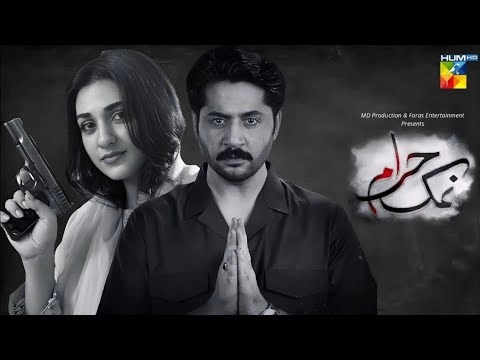
The drama also incorporates several unexpected twists that prevent the plot from becoming predictable. Just when viewers think they know where the story is heading, a sudden revelation changes everything. These twists are not merely added for shock value; rather, they tie back into the larger themes of betrayal, loyalty, and greed. This unpredictability ensures that Namak Haram maintains suspense, keeping audiences emotionally invested until the final episode.
Another strength of the plot is its ability to balance multiple storylines simultaneously. While the central conflict remains the focus, side plots involving secondary characters add richness to the narrative. Each subplot complements the main storyline, showing how even minor characters play important roles in shaping the bigger picture. This layered storytelling is a key reason why the Namak Haram Drama Review finds the plot so compelling—it avoids simplicity and instead delivers depth.
As the drama moves toward its climax, the tension reaches its peak. Characters who once held power face downfall, and those who were wronged find moments of justice or redemption. Yet, the ending does not offer easy resolutions. Instead, it stays true to the drama’s realistic tone by showing that some wounds never fully heal, and some consequences are irreversible. This Namak Haram Drama Review concludes that the plot of Namak Haram succeeds in creating a balance between closure and open-ended questions, which leaves viewers reflecting on the story long after it ends.
In summary, the plot of Namak Haram is a powerful blend of emotional depth, moral dilemmas, and suspenseful twists. It goes beyond typical family drama and ventures into the complexities of human nature, showing how loyalty and betrayal can coexist within the same relationships. This Namak Haram Drama Review finds the plot to be one of the strongest aspects of the drama, making it a must-watch for audiences who appreciate stories that are both entertaining and thought-provoking.
Character Analysis
No drama can succeed without well-developed characters, and Namak Haram proves this point strongly. Each role in the serial is crafted with depth and complexity, making the characters feel real rather than one-dimensional. In this Namak Haram Drama Review, a closer look at the character analysis shows how the cast members brought life to their roles, how each character evolved throughout the story, and how their personalities contributed to the central themes of loyalty, betrayal, greed, and justice.
The Protagonist
The central character of Namak Haram is written in a way that draws the sympathy of the audience while also highlighting moral struggles. This protagonist begins as someone loyal, humble, and devoted to family values, making viewers instantly connect with him. However, as the plot progresses, he faces betrayals and difficult choices that test his strength. In this Namak Haram Drama Review, it is important to note how the protagonist embodies the idea of resilience—his journey is not about being flawless but about learning, falling, and rising again. His emotional expressions, quiet sacrifices, and determination make him one of the most memorable leads in recent Pakistani dramas.
The Antagonist
Every gripping story needs a strong antagonist, and Namak Haram delivers a villain who is layered rather than cartoonish. The antagonist is not evil for the sake of being evil; instead, their actions are driven by greed, jealousy, and the desire for control. This makes them both believable and terrifying. What stands out is how the antagonist manipulates those around them, weaving lies and playing with trust to achieve personal gains. This Namak Haram Drama Review points out that the antagonist’s role adds suspense and intensity to the serial, as their schemes create ripple effects that impact all the other characters.
The Female Lead
The female protagonist of Namak Haram is portrayed as a mixture of strength and vulnerability. Unlike stereotypical portrayals of women in some dramas, she is not simply a victim; rather, she plays an active role in shaping the storyline. Her character highlights the struggles faced by women in Pakistani society—balancing loyalty to family, navigating betrayal, and fighting for dignity. The Namak Haram Drama Review emphasizes that her performance stands out because of her emotional depth, especially in scenes where she must choose between love and responsibility.
Supporting Characters
A drama like Namak Haram thrives not just on its leads but also on its supporting characters. These secondary roles are more than just fillers; they represent different shades of society. Some characters embody loyalty and sacrifice, while others represent selfishness and deceit. One of the strengths of Namak Haram is how even minor characters leave a lasting impression. Whether it’s a loyal friend, a manipulative relative, or a wise elder, each one adds depth to the storyline. In this Namak Haram Drama Review, it becomes clear that the supporting cast ensures that no moment in the serial feels hollow or wasted.
Character Evolution
Perhaps the most impressive aspect of Namak Haram is the way its characters evolve. No one remains stagnant; instead, experiences and circumstances change their outlooks. For instance, a character who begins as trusting and innocent may become guarded and skeptical by the end, while a character who seemed heartless might show moments of humanity. This transformation makes the story more engaging, as viewers are constantly reminded that people are not black or white but shades of gray. The Namak Haram Drama Review stresses that this evolution of characters is one of the reasons why the drama resonates so strongly with audiences.
Symbolism in Characters
Each character in Namak Haram represents more than just themselves—they symbolize broader societal issues. The antagonist reflects the dangers of unchecked greed, the protagonist represents resilience and justice, and the female lead stands for loyalty and emotional strength. Supporting characters bring out themes of betrayal, family dynamics, and moral choices. This symbolic representation ensures that the drama goes beyond individual stories, presenting a mirror of real society. For this reason, the Namak Haram Drama Review notes that the characters have a universal appeal, making the drama relevant across different audiences.
Performances
Of course, characters can only shine if the actors portraying them do justice to their roles. In Namak Haram, the performances are consistently strong. The lead actors deliver nuanced portrayals that bring out both subtle emotions and explosive confrontations. The antagonist’s cold expressions, the protagonist’s heartfelt dialogues, and the female lead’s tearful struggles are all executed with authenticity. The supporting cast also performs convincingly, ensuring that the drama never loses its emotional impact. This Namak Haram Drama Review recognizes the cast’s acting as one of the drama’s most significant strengths.
Audience Connection
Characters are successful only if viewers can relate to them, and Namak Haram achieves this effortlessly. Audiences see their own struggles, dilemmas, and emotions reflected in these roles. Whether it’s a betrayal by a trusted friend, a conflict between family loyalty and personal happiness, or the pursuit of justice, the characters feel relatable. In this Namak Haram Drama Review, it is clear that the ability of the characters to connect with viewers emotionally is what makes the serial so impactful.
Final Thoughts on Characters
In summary, the character development in Namak Haram is one of its strongest features. The protagonist inspires resilience, the antagonist adds suspense, the female lead portrays dignity, and the supporting characters enrich the narrative. Each role is crafted with care and performed with authenticity, making the drama a memorable experience. This Namak Haram Drama Review concludes that without such strong characters, the story would not have achieved the same level of emotional intensity and audience engagement.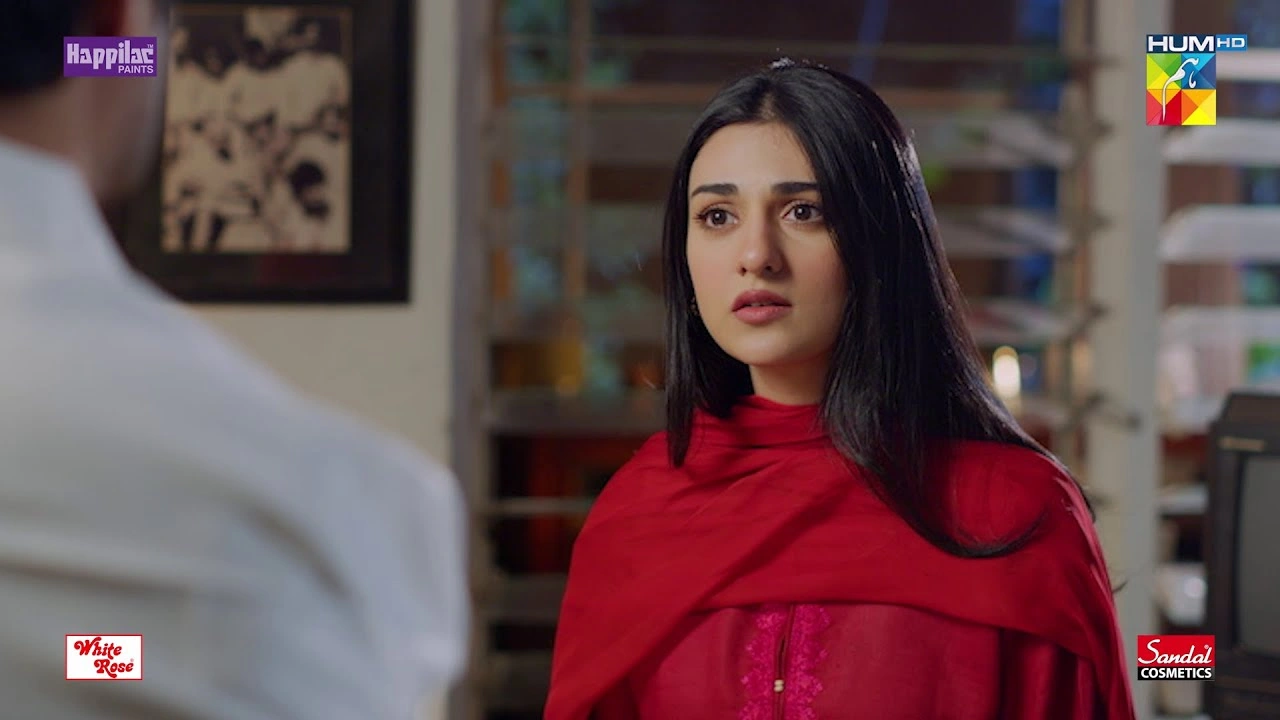
Cast Name and Role
A drama can only reach its true potential if the actors selected for each role perfectly match the character’s personality. Namak Haram stands out because its cast not only brings star power but also delivers emotionally charged performances that elevate the story. In this Namak Haram Drama Review, exploring the cast and their respective roles is essential, as each actor contributes something unique to the serial’s impact.
Imran Ashraf – The Protagonist
Imran Ashraf, known for his versatility and powerful performances, plays the central role in Namak Haram. His character represents the struggle of a man caught between loyalty, betrayal, and survival in a morally complex world. Imran Ashraf is widely respected for his ability to embody challenging roles, and here, he once again proves his acting brilliance. His portrayal shows raw emotions—ranging from vulnerability in personal moments to firmness in standing against injustice. In this Namak Haram Drama Review, it is clear that his role is the backbone of the entire serial, as his presence drives the narrative forward.
Sarah Khan – The Female Lead
Sarah Khan takes on the female protagonist’s role, and her performance is a highlight of the drama. She is known for playing strong, emotionally rich characters, and in Namak Haram, she balances strength with vulnerability. Her role depicts the struggles of women dealing with family pressures, emotional betrayals, and the quest for dignity. Sarah’s expressive acting brings authenticity to her character, making her journey relatable for viewers. This Namak Haram Drama Review underlines her on-screen chemistry with Imran Ashraf, which adds depth to the emotional aspects of the story.
Babar Ali – The Antagonist
Veteran actor Babar Ali portrays the antagonist, and his role is nothing short of impactful. His character is layered, manipulative, and driven by greed, making him the perfect opposition to the protagonist. Unlike many one-dimensional villains, Babar Ali’s character has depth—viewers can see his motivations, flaws, and ambitions clearly. His commanding screen presence and sharp dialogue delivery create tension in every scene. The Namak Haram Drama Review highlights that without such a strong antagonist, the drama would not have achieved its intensity.
Sunita Marshall – A Key Supporting Role
Sunita Marshall plays a significant supporting character whose presence shapes several turning points in the plot. Known for her elegant performances, she brings grace and emotional weight to her role. Her character represents wisdom, sacrifice, and the importance of making difficult decisions in the face of betrayal. In this Namak Haram Drama Review, Sunita Marshall’s performance is seen as a stabilizing factor that adds maturity to the overall cast.
Other Supporting Cast
The drama also features an ensemble of talented supporting actors, including:
-
Noman Ijaz (Special Appearance) – Though his role is limited, Noman Ijaz leaves a strong impression, as expected from an actor of his caliber. His character adds depth to the narrative, providing a bridge for crucial events.
-
Anika Zulfikar – Plays a younger character who embodies innocence, loyalty, and the pain of betrayal, representing how even seemingly minor roles can carry symbolic importance.
-
Supporting Ensemble – Other cast members include seasoned actors in the roles of family elders, friends, and rivals. Their performances contribute authenticity and ensure that no scene feels underdeveloped.
This Namak Haram Drama Review notes that the strength of the supporting cast lies in their ability to bring out the main themes of the drama—loyalty, betrayal, justice, and family struggles.
Chemistry Between Cast Members
What truly makes the cast shine in Namak Haram is the chemistry among the actors. Imran Ashraf and Sarah Khan share an emotionally powerful dynamic that pulls audiences into their story. Similarly, the tension between Imran Ashraf and Babar Ali creates unforgettable confrontations. Even the supporting actors blend seamlessly into the narrative, avoiding the common issue where side characters feel disconnected. In this Namak Haram Drama Review, the harmony of the cast is seen as one of the main reasons for the drama’s emotional success.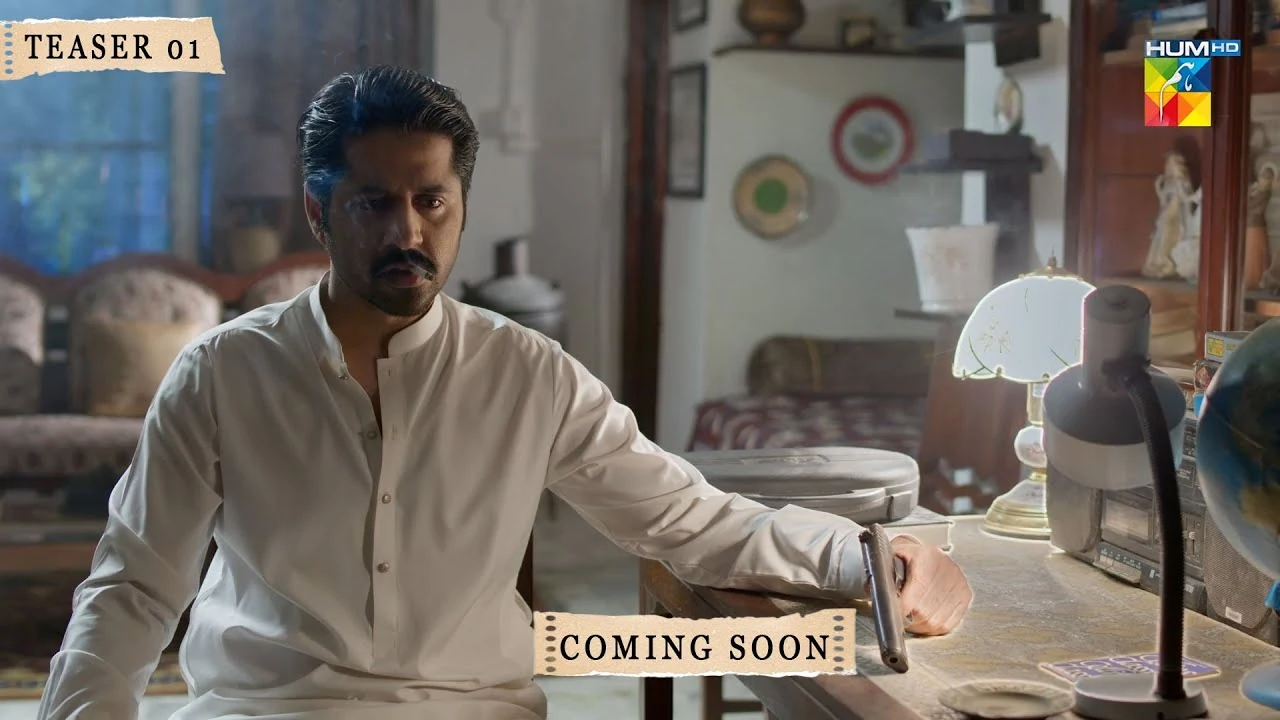
Performances that Stand Out
While every actor contributes to the drama’s success, certain performances deserve special mention. Imran Ashraf’s emotional breakdown scenes, Sarah Khan’s moments of resilience, and Babar Ali’s cold, calculating presence stand out as highlights. These moments create a lasting impression on audiences and are frequently discussed on social media. This Namak Haram Drama Review emphasizes that standout performances elevate the drama from being good to exceptional.
Audience Expectations vs. Reality
When the cast of Namak Haram was first announced, expectations were sky-high. Viewers anticipated powerful performances, and the drama did not disappoint. In fact, the cast exceeded expectations by delivering nuanced portrayals that resonated with both critics and audiences. The Namak Haram Drama Review reveals that casting choices were not just about bringing in big names but ensuring that each actor was suited for their respective role.
Final Thoughts on the Cast
In conclusion, the cast of Namak Haram is one of its biggest strengths. From Imran Ashraf’s layered performance to Sarah Khan’s emotional depth, Babar Ali’s menacing presence, and Sunita Marshall’s grace, every actor leaves a strong impact. The supporting cast ensures that the story feels complete and realistic, while the chemistry between actors adds emotional power to the narrative. This Namak Haram Drama Review concludes that without such a well-chosen and talented cast, the drama would not have achieved the same level of success or audience connection.
| Actor | Character |
|---|---|
| Imran Ashraf | Mureed |
| Sarah Khan | Asma |
| Babar Ali | Amin Qureshi |
| Nabeela Khan | Uzma |
| Sunita Marshall | Malaika |
| Anika Zulfikar | Aimal |
| Sajawal Khan | Arsal |
| Rabia Noreen | Sadia |
| Mohsin Ejaz | Mustafa |
| Mizna Waqas |
This cast delivers strong performances that make the story compelling, with each actor contributing to the emotional resonance of the drama.
Themes and Messages
Every memorable drama is built on powerful themes that resonate with audiences long after the final episode ends. Namak Haram stands out not only for its storyline and performances but also for the meaningful lessons it conveys. In this Namak Haram Drama Review, the themes and messages form the backbone of the analysis, because they show what the drama ultimately aims to communicate to its viewers.
Loyalty as a Foundation
One of the strongest themes in Namak Haram is loyalty. From family relationships to friendships, the story emphasizes how loyalty builds trust and strengthens bonds. Characters who embody loyalty are portrayed as resilient, compassionate, and morally upright. However, the drama also shows that loyalty is not always rewarded—it can be tested, broken, or exploited. This Namak Haram Drama Review highlights how the drama realistically portrays loyalty as a fragile yet powerful quality, showing both its beauty and its vulnerability.
The Pain of Betrayal
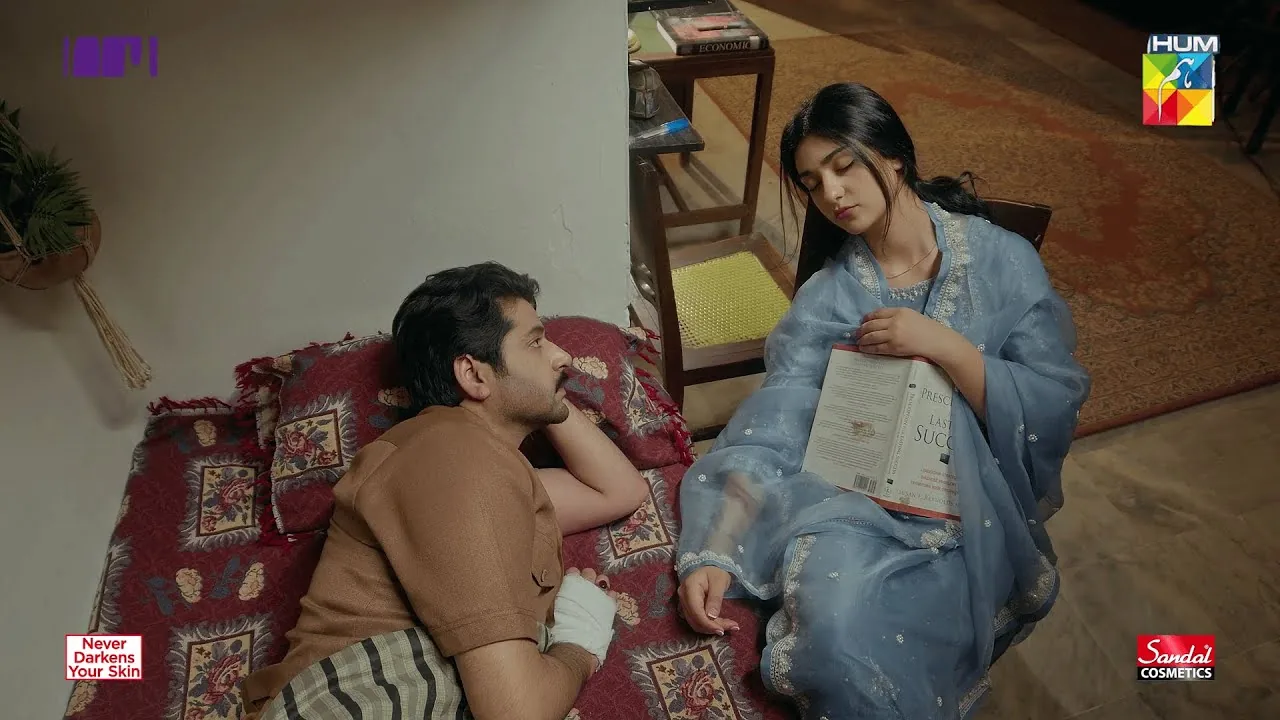
Another central theme is betrayal, which is explored from multiple angles. The betrayal of trust between friends, the disloyalty within families, and the deception in romantic relationships all form crucial turning points in the story. What makes Namak Haram unique is that betrayal is not treated as a sudden shock but as a gradual erosion of trust caused by greed, envy, or selfishness. This Namak Haram Drama Review notes that betrayal in the drama feels authentic because it mirrors real-life situations where even the closest relationships can break under pressure.
The Quest for Justice
Justice plays a symbolic role in the drama. Characters who suffer injustices seek accountability, while others try to manipulate circumstances to escape it. The story asks important questions: Can justice truly prevail in a society where power and money often dictate outcomes? Should people rely on personal revenge or trust in the system? The Namak Haram Drama Review observes that the drama doesn’t provide easy answers, which makes the theme of justice all the more thought-provoking. By showing both victories and failures in the pursuit of justice, the serial leaves viewers reflecting on its relevance to their own lives.
Greed and Its Consequences
Greed is portrayed as one of the most destructive forces in Namak Haram. Characters who fall prey to greed end up betraying others, losing relationships, and facing inevitable downfall. The drama makes it clear that wealth and power can bring temporary satisfaction but often lead to long-term ruin. This Namak Haram Drama Review stresses that the theme of greed is not exaggerated but woven naturally into the narrative, reminding viewers of the dangers of valuing material gain over integrity.
The Complexity of Family Dynamics
Family is another key theme, as Namak Haram shows both the strength and fragility of family bonds. While some characters sacrifice everything for family unity, others prioritize personal ambition over kinship. The drama portrays how generational conflicts, sibling rivalries, and parental expectations affect decisions and create lasting consequences. In this Namak Haram Drama Review, family dynamics are seen as one of the most relatable aspects, since Pakistani dramas often mirror the importance of family in real life.
The Struggle Between Morality and Desire
The drama also emphasizes the conflict between doing what is morally right and pursuing selfish desires. Characters are repeatedly faced with difficult choices—whether to remain loyal, pursue justice, or give in to personal ambition. This struggle reflects the gray areas of human nature. Rather than presenting characters as purely good or evil, Namak Haram shows that even good people can falter under temptation. This Namak Haram Drama Review finds this approach refreshing because it makes the characters more human and the story more believable.
Symbolism of “Namak Haram”
The very title Namak Haram carries symbolic meaning. It is a phrase used to describe someone ungrateful or disloyal to the very people who supported them. Throughout the drama, this symbolism plays out in different forms—characters turning against those who trusted them, or individuals choosing greed over gratitude. The title is not just catchy; it represents the heart of the narrative. In this Namak Haram Drama Review, the symbolism behind the name is seen as one of the cleverest elements of the drama, as it captures the essence of betrayal and ingratitude.
Social Messages
Beyond personal conflicts, Namak Haram carries broader social messages. It highlights how greed and betrayal can destroy families, how justice is often compromised, and how loyalty is undervalued in today’s world. It also shines a light on the struggles of women who face both societal pressures and personal betrayals. By presenting these issues in a relatable manner, the drama encourages viewers to reflect on their own values and choices. The Namak Haram Drama Review stresses that this social relevance is a major reason why the drama resonates with a wide audience.
Final Thoughts on Themes
In conclusion, the themes and messages of Namak Haram give the drama its emotional and intellectual depth. Loyalty, betrayal, justice, greed, and family dynamics are explored with realism, while the title itself serves as a symbolic reminder of ingratitude’s consequences. This Namak Haram Drama Review concludes that the drama’s power lies not only in its storyline but in the way it forces viewers to reflect on human nature, societal flaws, and the moral choices that define our lives.
Direction and Cinematography
The direction in Namak Haram focuses on emotional storytelling rather than flashy visuals. Cinematography uses close-up shots and muted color tones to emphasize the drama’s emotional intensity. Lighting and set design complement the narrative, creating a visually cohesive experience that enhances the themes of loyalty and betrayal.

Loyalty
Loyalty is one of the most powerful and recurring themes in Namak Haram. The drama beautifully highlights how loyalty can act as the foundation of trust, respect, and long-lasting relationships, yet it also shows how fragile it becomes when greed, jealousy, or betrayal enter the equation. In this Namak Haram Drama Review, the exploration of loyalty deserves a deep dive because it connects directly with the emotional struggles of the characters and mirrors the values of Pakistani society.
Loyalty in Family Bonds
One of the most touching portrayals of loyalty in Namak Haram is within family relationships. Characters sacrifice their personal happiness for the sake of family unity, showing that loyalty is often tied to love and responsibility. Whether it is a son standing by his parents, a sibling supporting their brother or sister, or a spouse enduring hardships for the sake of their partner, the drama emphasizes that loyalty to family is one of the strongest moral values. This Namak Haram Drama Review finds that the portrayal of such bonds resonates deeply with audiences who relate to the importance of family in their own lives.
Loyalty Tested by Betrayal
While loyalty is a noble quality, the drama also shows that it is constantly tested. Several characters begin with unwavering loyalty but are pushed into situations where trust is broken. These betrayals often come from the very people who were once considered closest. This makes the moments of disloyalty especially painful. The Namak Haram Drama Review emphasizes that the drama does not show loyalty as something permanent—it depicts it as a fragile bond that can shatter under pressure, reflecting the complexities of real human relationships.
Romantic Loyalty
The theme of loyalty extends strongly into the romantic subplot of Namak Haram. Love in the drama is not portrayed as simple affection but as a test of faithfulness and resilience. The female lead’s devotion to her partner, even in the face of hardships, highlights how loyalty strengthens love. However, misunderstandings and manipulations create cracks that test this loyalty again and again. The Namak Haram Drama Review acknowledges that by tying loyalty directly to love, the drama makes viewers emotionally invested in the fate of the romantic relationships.
Friendship and Loyalty
Another aspect of loyalty depicted in Namak Haram is friendship. Friends are shown as a source of emotional support and guidance. Some characters prove themselves to be true friends who stand firm through thick and thin, while others disguise their selfish motives under the mask of loyalty. This realistic portrayal of friendships makes audiences reflect on their own experiences of trust and betrayal. The Namak Haram Drama Review highlights that these friendships serve as a reminder of how loyalty must be tested to prove its authenticity.
Loyalty vs. Self-Interest
One of the central conflicts in the drama is the clash between loyalty and self-interest. Characters often face dilemmas where they must choose between staying loyal to loved ones or pursuing personal ambitions. Unfortunately, greed often overpowers loyalty, leading to heartbreaking betrayals. Yet, the characters who remain loyal—even in difficult situations—are shown as emotionally stronger and morally superior. This Namak Haram Drama Review stresses that this contrast teaches a valuable lesson: loyalty requires sacrifice, but it also brings dignity and long-term respect.
Symbolism of Loyalty
The title Namak Haram itself carries an ironic contrast against loyalty. In Urdu, “namak haram” refers to someone who betrays loyalty and acts ungrateful toward those who once supported them. Throughout the drama, this symbolism plays out as certain characters betray the very people who trusted them. By making loyalty such a central theme, the drama ensures that audiences constantly reflect on its importance. The Namak Haram Drama Review finds this symbolic approach particularly effective in driving home the consequences of disloyalty.
Emotional Impact on Audiences
One of the reasons why loyalty in Namak Haram strikes such a chord is because it reflects real human experiences. Viewers often relate to the pain of being betrayed by someone they trusted or the pride of standing by someone during difficult times. Many fans on social media discuss these themes, often connecting the drama’s portrayal of loyalty with their personal lives. This Namak Haram Drama Review notes that the emotional connection created through loyalty is a big reason behind the drama’s growing popularity.
Lessons on Loyalty
The drama does not only highlight loyalty but also teaches valuable lessons. It shows that loyalty is not easy—it requires patience, sacrifice, and sometimes even suffering. At the same time, it emphasizes that disloyalty, while temporarily rewarding, ultimately leads to downfall and regret. The Namak Haram Drama Review concludes that this theme provides one of the strongest moral lessons in the drama: loyalty may not always guarantee immediate rewards, but it creates a legacy of respect and trust that betrayal can never replace.
Final Thoughts on Loyalty
In summary, loyalty serves as both a strength and a test throughout Namak Haram. Whether in family, love, or friendships, loyalty binds characters together and shapes their choices. Yet, it is also challenged repeatedly, showing how fragile trust can be. This Namak Haram Drama Review finds that the exploration of loyalty is not only central to the storyline but also deeply relatable to audiences, making it one of the most impactful themes in the drama.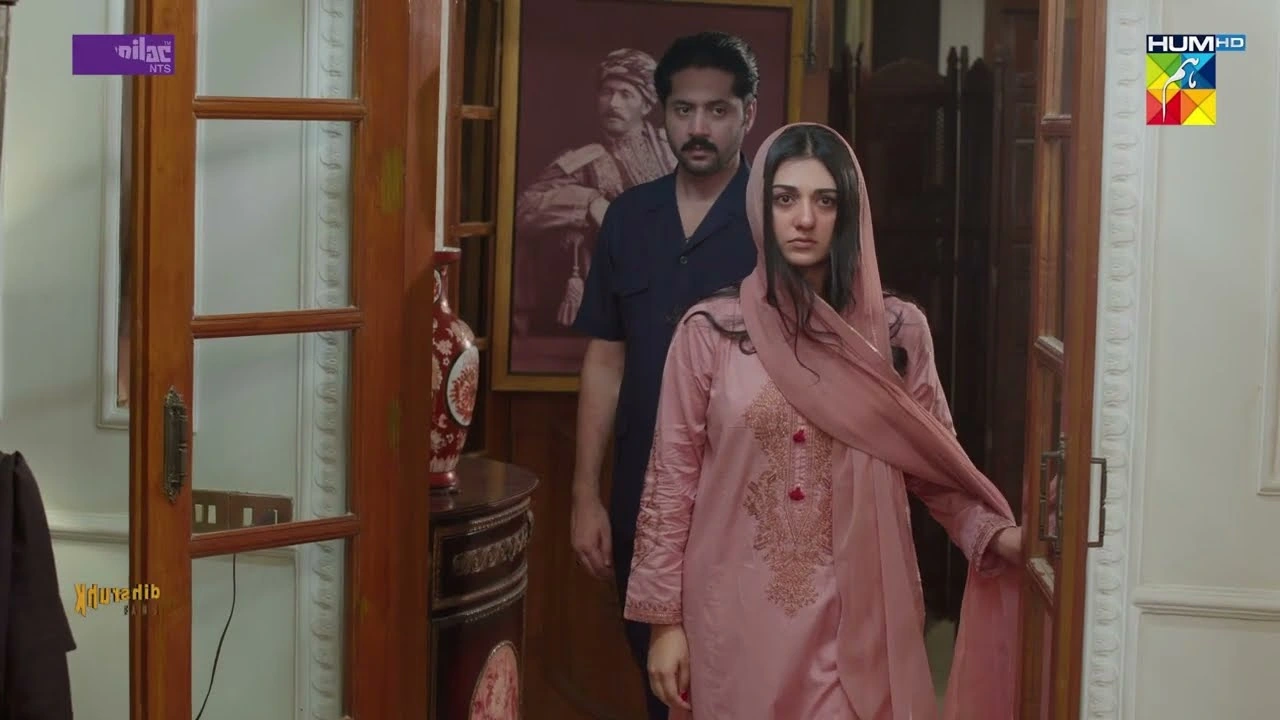
Betrayal
If loyalty forms the heart of Namak Haram, then betrayal is its shadow. The drama paints betrayal not just as a personal weakness but as a destructive force that shatters trust, relationships, and even families. In this Namak Haram Drama Review, the role of betrayal deserves detailed exploration because it is the very act that transforms ordinary conflicts into unforgettable emotional turning points.
The Pain of Betrayal
From the very beginning, Namak Haram reminds viewers that betrayal cuts deeper than any external wound. The drama shows betrayal in multiple forms—broken promises, dishonesty in love, betrayal of family honor, and treachery in friendships. Each time a trusted bond breaks, it leaves scars that cannot easily be healed. The Namak Haram Drama Review highlights that this theme resonates because almost everyone has, at some point, experienced betrayal in real life, making the drama’s portrayal even more impactful.
Betrayal in Romantic Relationships
Love is perhaps the most vulnerable space for betrayal, and Namak Haram captures this perfectly. Characters who initially promise eternal loyalty begin to falter under pressure, leading to mistrust, heartbreak, and emotional distance. The drama realistically shows how lies, secrets, and outside influences poison relationships. What makes the Namak Haram Drama Review particularly engaging here is how betrayal is not one-dimensional—it’s not always deliberate. Sometimes, even silence or hesitation becomes a form of betrayal when the other partner feels abandoned.
Family Betrayal
One of the hardest forms of betrayal in Namak Haram is when family members turn against one another. Parents betrayed by children, siblings betraying siblings, or in-laws breaking trust—all these conflicts highlight how betrayal is not always about outsiders. The drama emphasizes that betrayal within families is the most devastating because it tears apart the very structure meant to provide comfort and security. In this Namak Haram Drama Review, it is clear that these moments of betrayal form the emotional peaks of the story, leaving viewers shocked and heartbroken.
Friendship and Betrayal
The drama also explores betrayal in friendships, showing how people who once stood as companions can suddenly change due to jealousy, greed, or personal ambition. In Namak Haram, some friends turn into enemies overnight, proving that betrayal often comes from the least expected places. This realistic portrayal makes audiences reflect on their own friendships and the importance of recognizing red flags early. The Namak Haram Drama Review stresses that betrayal among friends carries a painful irony—it is the breaking of trust by the very people chosen as “family by choice.”
Betrayal and Greed
A recurring pattern in Namak Haram is that betrayal is often rooted in greed. Characters who crave wealth, power, or status are willing to sacrifice even their closest relationships. The drama subtly critiques this human weakness, showing how greed blinds people to values like loyalty and gratitude. The Namak Haram Drama Review finds this connection particularly powerful because it ties betrayal not just to personal failings but to broader social issues where materialism often overtakes morality.
The Emotional Aftermath of Betrayal
The brilliance of Namak Haram lies in how it portrays the aftermath of betrayal. Characters don’t simply move on; they carry wounds, bitterness, and emotional baggage that affect their decisions for years to come. Betrayal leads to broken families, strained relationships, and mistrust that lingers even when forgiveness is offered. This Namak Haram Drama Review observes that these emotional consequences make the story believable and relatable, as betrayal in real life rarely ends cleanly.
Symbolism of Betrayal
The very title of the drama—Namak Haram—is rooted in betrayal. The phrase itself is used in Urdu culture to describe someone who is ungrateful and disloyal despite benefiting from another’s kindness. Throughout the drama, this symbolism echoes again and again as characters betray the very people who supported and trusted them. The Namak Haram Drama Review highlights how the title adds weight to every act of betrayal, making it central to the story’s identity.
Audience Reaction to Betrayal Scenes
One of the reasons audiences remain hooked to Namak Haram is because of its unpredictable betrayals. Each twist shocks viewers and sparks debates on social media, with fans expressing anger at characters who break trust. This engagement shows that betrayal is not only a dramatic device but also a catalyst for audience discussions. The Namak Haram Drama Review emphasizes that betrayal scenes are among the most talked-about moments, proving their significance in the drama’s success.
Lessons on Betrayal
While betrayal brings pain, Namak Haram also uses it to teach lessons. The drama reminds viewers that betrayal may provide short-term benefits, but it always leads to long-term regret. Disloyal characters often end up isolated, mistrusted, or destroyed by their own actions. This Namak Haram Drama Review underlines that the drama acts as a cautionary tale, warning audiences about the destructive consequences of betraying loved ones.
Final Thoughts on Betrayal
In conclusion, betrayal in Namak Haram is not just an event but a driving force of the entire story. It affects love, family, and friendships, turning relationships upside down and leaving unforgettable emotional scars. The Namak Haram Drama Review shows that betrayal is both the greatest weakness of the characters and the greatest strength of the storytelling, ensuring that the drama leaves a lasting impression on anyone who watches it.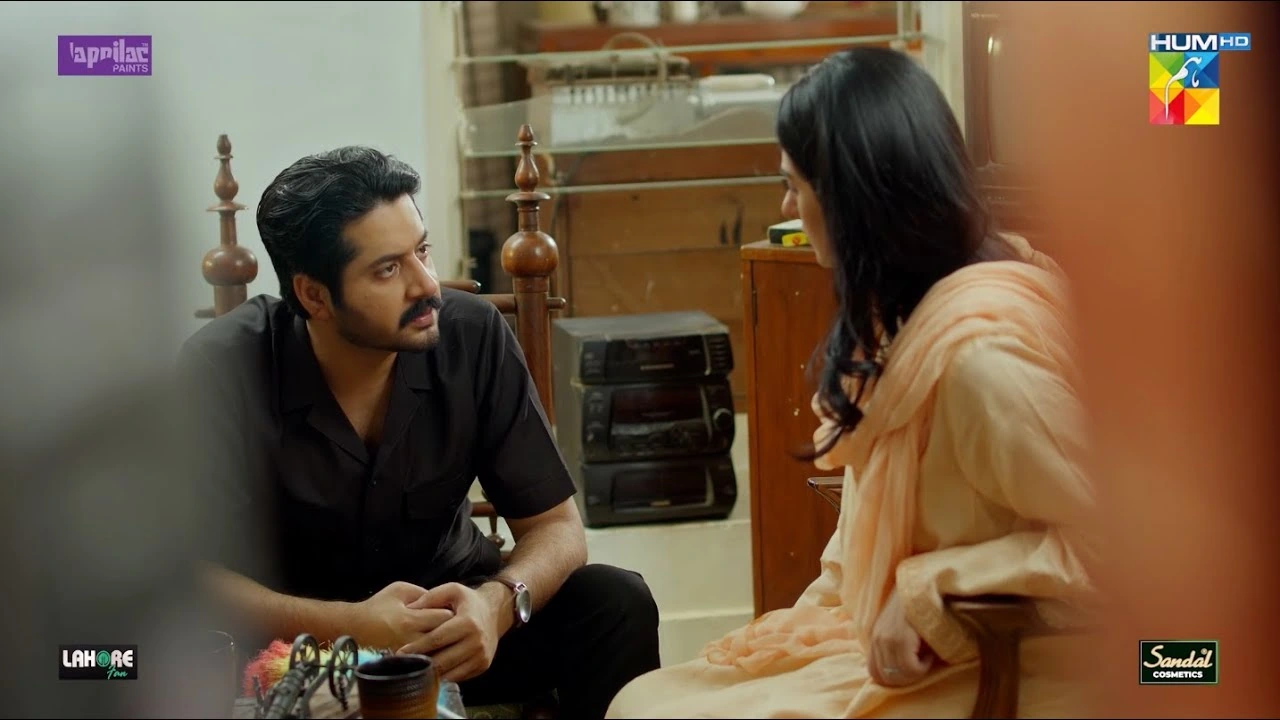
Justice
If betrayal is the wound in Namak Haram, then justice is the cure audiences eagerly wait for. Every great story balances wrongdoing with some form of accountability, and this drama captures the struggle for justice in a way that feels both personal and universal. In this Namak Haram Drama Review, the theme of justice stands as one of the most important pillars, giving viewers the emotional satisfaction of seeing truth win, even if only after immense struggle.
The Meaning of Justice in Namak Haram
Justice in Namak Haram is not limited to courts, laws, or legal battles. Instead, it is portrayed as a moral balance where wrongdoers must eventually face consequences—whether through fate, society, or the emotional strength of their victims. The Namak Haram Drama Review emphasizes that this broad interpretation of justice is what makes the drama relatable. Viewers see reflections of their own lives, where justice is often delayed or denied, yet hope persists.
Justice Against Betrayal
Since betrayal is a recurring theme, justice often revolves around restoring dignity to those who have been wronged. Characters who betray trust, manipulate others, or act out of greed are eventually unmasked. While the road to justice is never easy in the drama, its arrival is deeply satisfying. The Namak Haram Drama Review highlights how audiences connect emotionally with these moments, often celebrating the downfall of disloyal characters as if they were victories in real life.
Legal vs. Emotional Justice
One of the most intriguing aspects of Namak Haram is its portrayal of both legal and emotional justice. In some cases, justice comes through the law—wrongdoers are punished in a formal sense. In others, justice is more personal, where characters regain their self-respect, reclaim their voices, or reconcile with truth. The Namak Haram Drama Review points out that this duality makes the story more layered, showing that justice is not only about punishment but also about healing.
The Delayed Arrival of Justice
A common frustration in dramas is the delay of justice, and Namak Haram uses this frustration effectively. Viewers often watch characters suffer for episodes before the truth comes to light. Yet this delay mirrors real life, where justice is rarely swift. The Namak Haram Drama Review observes that this narrative choice adds realism and tension. It keeps audiences engaged, hoping for justice to arrive, while also teaching patience and resilience.
Justice Within Families
In many ways, Namak Haram shows that justice within families is harder than in society. Parents, siblings, and spouses often hesitate to confront betrayal because of love or fear of dishonor. Yet, the drama makes a bold statement: justice must exist even within families for peace to be restored. The Namak Haram Drama Review highlights that these family-centered justice moments are among the most powerful, reminding viewers that silence only empowers betrayal.
Divine Justice
Another subtle layer in the drama is the idea of divine justice. Even when human systems fail, the story reminds viewers that fate and God’s will bring balance eventually. Wrongdoers face downfall through unexpected turns of events, often losing everything they schemed to gain. This concept of divine justice resonates strongly with cultural and religious values, and the Namak Haram Drama Review finds it a core reason why the drama feels authentic to its audience.
Audience’s Emotional Investment in Justice
One of the reasons Namak Haram became so engaging is that audiences were emotionally invested in who deserved justice and who deserved punishment. Social media discussions often centered around whether certain characters received fair outcomes. This engagement proves that justice is not just a plot device but a driving force that keeps viewers loyal to the drama. The Namak Haram Drama Review emphasizes how the drama’s justice-driven storytelling helped maintain its popularity.
Justice as a Moral Lesson
Beyond entertainment, Namak Haram uses justice to deliver moral lessons. It reminds viewers that actions have consequences, and betrayal, greed, or dishonesty will eventually catch up with a person. The drama sends a powerful message: no matter how strong the wrongdoer appears, truth and justice have the final word. The Namak Haram Drama Review identifies this moral undertone as one of the reasons the drama leaves such a lasting impression.
Justice and Redemption
Interestingly, Namak Haram also explores the idea that justice does not always mean harsh punishment. Sometimes, characters are given a chance to redeem themselves by acknowledging their mistakes and changing their behavior. This nuanced approach shows that justice is not about revenge but about restoring balance. The Namak Haram Drama Review appreciates this realistic portrayal, as in real life, redemption can sometimes be more powerful than punishment.
Final Thoughts on Justice
In conclusion, justice in Namak Haram is not just about punishing villains but about restoring dignity, peace, and balance to relationships. The Namak Haram Drama Review makes it clear that this theme is central to the drama’s success. By weaving together legal, emotional, family, and divine justice, the story creates a tapestry of accountability that resonates deeply with its audience. In the end, justice stands as a reminder that betrayal and dishonesty may cause pain, but truth and fairness always rise above.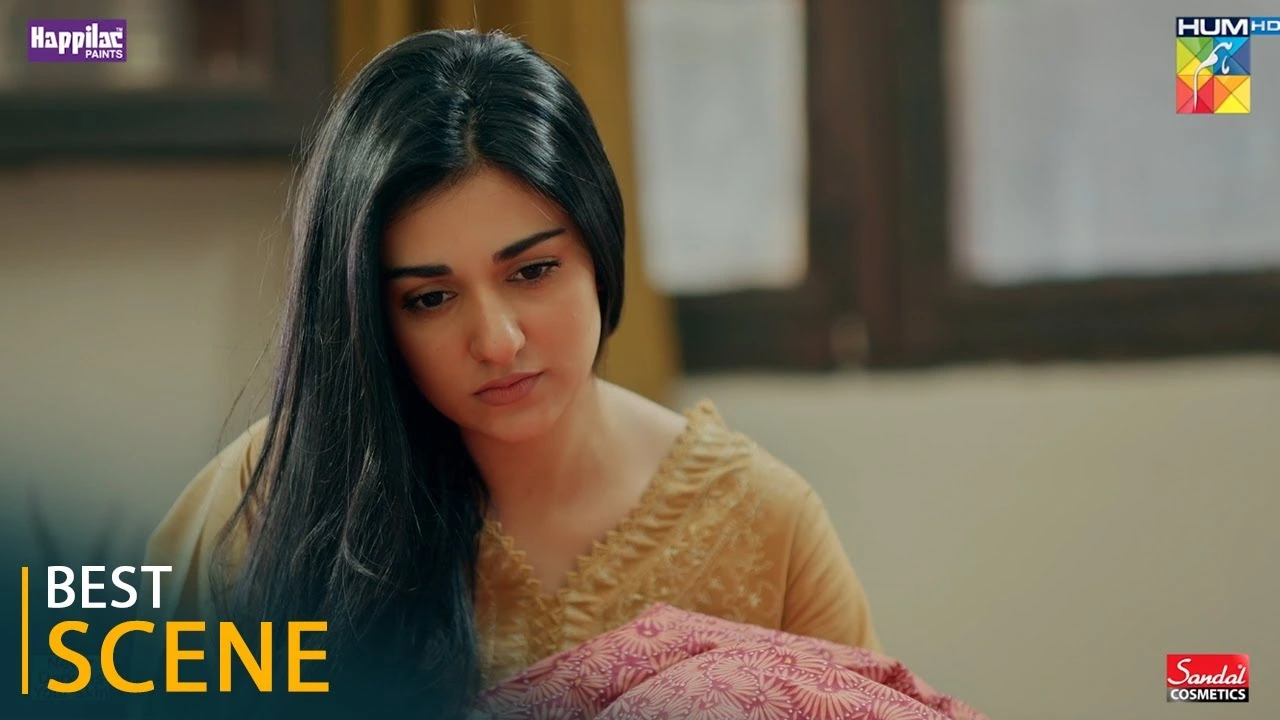
Greed and Its Consequences
Greed has always been a timeless subject in literature, films, and dramas. It is one of those human flaws that can destroy relationships, fuel betrayal, and corrupt even the most loyal of people. In Namak Haram, greed is not just a background theme—it is one of the strongest driving forces behind many conflicts. The Namak Haram Drama Review reveals that the destructive power of greed becomes a central lesson for audiences, reminding them of the dangers of placing wealth and power above humanity.
Greed as a Catalyst for Conflict
Every betrayal, every manipulation, and every broken relationship in Namak Haram can, in one way or another, be traced back to greed. Whether it’s the desire for property, social standing, or control, greed acts as a poison that seeps into the lives of characters and influences their decisions. The Namak Haram Drama Review shows how this greed-driven conflict resonates with viewers, as many people see similar struggles in real life.
The Link Between Greed and Betrayal
Greed and betrayal often walk hand in hand, and Namak Haram captures this connection brilliantly. Characters driven by greed betray their families, their friends, and even their own values in pursuit of selfish gains. This betrayal not only creates tension in the storyline but also highlights how greed can blind people to loyalty and love. The Namak Haram Drama Review notes that this interplay of greed and betrayal forms some of the most intense moments in the drama.
Greed’s Impact on Family Dynamics
One of the most heart-wrenching elements in Namak Haram is how greed affects families. Property disputes, inheritance conflicts, and the hunger for control lead to deep fractures within households. The Namak Haram Drama Review emphasizes that these family-driven stories strike a chord with viewers because they reflect real issues in many societies. The drama shows how greed can turn siblings into rivals, spouses into enemies, and parents into manipulators.
Greed Versus Justice
In the battle between greed and justice, Namak Haram takes audiences on a rollercoaster. At first, it may seem like the greedy characters always win, manipulating circumstances in their favor. But as the story unfolds, justice catches up with them. This balance ensures that the drama is not only entertaining but also morally uplifting. The Namak Haram Drama Review highlights how this clash keeps viewers glued to the screen, rooting for justice to triumph over greed.
Psychological Effects of Greed
Beyond material loss, greed leaves a deep psychological impact on characters. Those who fall victim to greedy schemes often suffer from low self-esteem, mistrust, and emotional trauma. On the other hand, those who act greedily find themselves restless, paranoid, and unsatisfied even when they succeed. The Namak Haram Drama Review points out that this psychological realism adds depth to the story, making the drama more relatable and thought-provoking.
Greed and Its Ripple Effect
The consequences of greed in Namak Haram do not stop with one character. Instead, greed creates a ripple effect, spreading chaos across multiple lives. A single act of selfishness leads to misunderstandings, broken relationships, and escalating conflicts. The Namak Haram Drama Review makes it clear that this ripple effect keeps the narrative alive and dynamic, constantly reminding viewers that greed rarely destroys just one person—it destroys everyone around them.
Moral Lessons About Greed
Like many powerful dramas, Namak Haram is more than just entertainment; it is also a moral guide. By showcasing the downfall of greedy characters, it warns viewers about the dangers of unchecked ambition. The Namak Haram Drama Review highlights how these moral lessons are delivered subtly through storytelling rather than lectures, making them more impactful and memorable.
The Downfall of Greedy Characters
One of the most satisfying elements of Namak Haram is watching greedy characters face their downfall. No matter how powerful they seem, their greed eventually leads to their own destruction. This poetic justice resonates deeply with audiences, who often see it as a form of karma. The Namak Haram Drama Review explains that these moments provide emotional relief, proving that greed may win battles but never the war.
Greed in Contrast With Loyalty
Another powerful narrative device in the drama is the contrast between greedy and loyal characters. While greed leads to betrayal and destruction, loyalty brings peace and healing. This contrast not only enriches the story but also drives home the message that selflessness and honesty are far more rewarding than selfishness. The Namak Haram Drama Review appreciates how this balance of opposites makes the drama engaging and morally clear.
Final Thoughts on Greed and Its Consequences
In the end, Namak Haram proves that greed is a destructive force that leaves behind broken families, lost trust, and moral emptiness. Yet, by exposing the consequences of greed, the drama also gives hope—showing that justice, loyalty, and love can prevail. The Namak Haram Drama Review concludes that this theme is not only central to the drama but also one of the key reasons it resonates so deeply with audiences. It serves as a reminder that wealth may be temporary, but integrity and humanity are eternal.

Family Dynamics
Family is at the heart of almost every South Asian drama, and Namak Haram is no exception. The story thrives on relationships within families—parents and children, siblings, spouses, and extended relatives. The Namak Haram Drama Review reveals that family ties in this serial are not simple or idealized; they are complex, layered, and often influenced by power struggles, loyalty, and betrayal. This makes the drama realistic, emotionally engaging, and relatable for audiences who see reflections of their own lives on screen.
The Foundation of Family in the Drama
At the beginning, family relationships in Namak Haram are built on love, trust, and traditional values. Characters show deep care for their parents, siblings, and partners. However, as the drama progresses, these foundations are tested by greed, jealousy, and conflicting ambitions. The Namak Haram Drama Review explains that this gradual shift from harmony to conflict keeps the audience invested, as viewers want to see how each family bond evolves.
Parent-Child Relationships
Parents play a central role in shaping the values of their children. In Namak Haram, we see how parental expectations and decisions influence the choices of the younger generation. Some parents provide guidance and unconditional love, while others allow selfish desires to cloud their judgment. The Namak Haram Drama Review notes that these parent-child dynamics highlight generational differences—between traditional authority and modern independence—which many viewers can personally relate to.
Sibling Rivalries and Bonds
Few things create as much drama on screen as sibling rivalries, and Namak Haram uses this theme effectively. Brothers and sisters who once stood united in love and trust are pulled apart by greed and manipulation. Yet, in contrast, there are also siblings in the drama who display loyalty, standing together through every challenge. The Namak Haram Drama Review points out that this duality makes the drama more balanced, showing both the destructive and healing powers of sibling relationships.
Spousal Conflicts and Love
Married couples in Namak Haram represent another key layer of family dynamics. Some marriages suffer under the weight of mistrust and betrayal, while others remain strong despite external pressures. The drama shows that love alone is not enough—trust, respect, and honesty are equally important for sustaining a relationship. The Namak Haram Drama Review observes that these depictions of spousal relationships give the drama emotional depth, as viewers often sympathize with the struggles of wives and husbands torn apart by lies and greed.
The Role of Extended Family
In South Asian culture, extended families often play a significant role in people’s lives, and this is vividly portrayed in Namak Haram. Uncles, aunts, and cousins often add both support and tension to the story. Their involvement in property disputes, emotional manipulation, or unexpected loyalty shapes the direction of the narrative. The Namak Haram Drama Review highlights that this inclusion of extended family members makes the drama feel authentic, as many real families face similar challenges.
Family Unity Versus Division
A recurring theme in Namak Haram is the constant struggle between unity and division. On one hand, families strive to stay together through loyalty and tradition; on the other, greed and betrayal tear them apart. The Namak Haram Drama Review emphasizes that this push and pull is what makes the drama compelling, because audiences are always left wondering whether unity or division will prevail in the end.
Generational Gaps in Values
Another significant layer is the generational gap within families. While the older generation often clings to cultural traditions and family honor, the younger characters seek independence and personal happiness. This clash of values creates both conflict and opportunities for reconciliation. The Namak Haram Drama Review observes that these generational differences reflect real societal changes, making the drama not only entertaining but also thought-provoking.
The Impact of Betrayal on Family Bonds
Nothing damages a family more than betrayal, and in Namak Haram, betrayal often comes from those closest to home. Whether it is a sibling who covets inheritance, a spouse who breaks trust, or a parent who chooses greed over love, betrayal leaves deep scars. The Namak Haram Drama Review underscores that these betrayals serve as a painful reminder of how fragile family bonds can be when tested by selfish desires.
The Healing Power of Love and Forgiveness
Despite the bitterness, Namak Haram also shows the healing power of love and forgiveness within families. Characters who choose to forgive bring hope and restore relationships, even after major conflicts. The Namak Haram Drama Review notes that this balance of conflict and healing is what makes the drama emotionally satisfying, as viewers yearn for reconciliation and peace.
Final Thoughts on Family Dynamics
In conclusion, the family dynamics in Namak Haram are central to its appeal. They reflect the joys and struggles of real families, making the drama relatable and emotionally powerful. The Namak Haram Drama Review concludes that by exploring parent-child bonds, sibling rivalries, spousal conflicts, and generational gaps, the drama delivers a complete picture of family life. While greed and betrayal often disrupt harmony, love and forgiveness ultimately offer redemption. This honest portrayal of family dynamics is one of the key reasons Namak Haram resonates so deeply with audiences across cultures.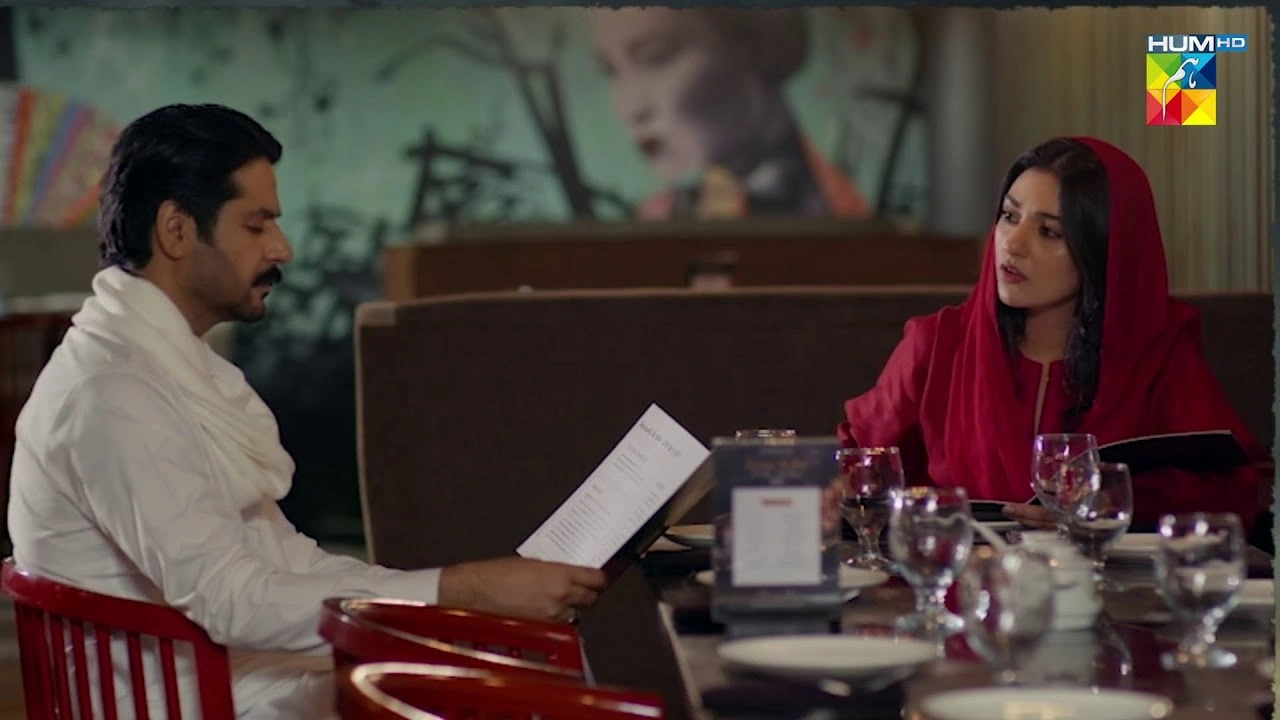
Direction and Cinematography
One of the strongest pillars of Namak Haram lies in its direction and cinematography, which elevate the drama from a simple story to a visually powerful and emotionally gripping experience. A drama’s success is often tied not only to its script and acting but also to how the narrative is presented on screen. The Namak Haram Drama Review highlights how the director’s choices, camera work, lighting, and overall visual tone contribute significantly to the impact of the serial.
Vision of the Director
The director of Namak Haram has crafted the story with a clear vision. Instead of relying solely on dialogues, emotions are allowed to breathe through subtle pauses, background silence, and well-framed shots. The Namak Haram Drama Review observes that the director’s strength lies in balancing the fast-paced plot twists with slower, emotional moments, ensuring that the audience remains hooked without feeling overwhelmed.
Storytelling Through Visuals
Cinematography in Namak Haram plays a crucial role in storytelling. Wide shots are used to emphasize grandeur and wealth, while close-ups capture raw emotions such as fear, guilt, or love. The Namak Haram Drama Review notes that these choices reflect a deep understanding of how visuals can amplify a narrative. For instance, betrayal scenes are often shot with dim lighting and sharp angles, intensifying the sense of tension, while moments of loyalty and unity are bathed in warm, golden hues.
Use of Symbolism
Symbolism through visuals is another key strength. The Namak Haram Drama Review highlights that recurring imagery—such as doors closing during betrayal or mirrors during moments of self-reflection—adds layers of meaning without spelling everything out for the audience. These subtle touches demonstrate the director’s ability to merge art with storytelling.
Lighting and Mood
Lighting in Namak Haram is carefully designed to reflect the mood of the story. Dark tones dominate scenes of deception, while brighter, natural light is used in moments of honesty and family unity. The Namak Haram Drama Review points out that this intentional use of lighting enhances emotional depth, making scenes more memorable and impactful.
Camera Angles and Movement
The choice of camera angles directly influences how audiences perceive characters and events. In Namak Haram, power struggles are often captured with low-angle shots, making certain characters appear dominant. Conversely, vulnerable moments are depicted with high-angle shots, emphasizing fragility. The Namak Haram Drama Review notes that smooth tracking shots during emotional conversations keep viewers connected to the intensity of the scene, while shaky hand-held shots during confrontations create a sense of chaos.
Costumes and Set Design
While not strictly cinematography, the overall visual presentation includes costumes and set design, both of which are meticulously executed in Namak Haram. The Namak Haram Drama Review explains that the lavish sets highlight themes of wealth and greed, while the more modest household environments represent sincerity and loyalty. Costumes, too, are chosen with care, reflecting each character’s personality—powerful figures dressed in bold colors, while vulnerable characters wear softer tones.
Pacing Through Editing
Editing choices directly affect the drama’s pacing. The Namak Haram Drama Review appreciates how editing keeps the story tight while still allowing room for emotional pauses. Flashbacks are used sparingly but effectively, offering context without dragging the plot. Transitions are smooth, ensuring the audience remains immersed in the unfolding events.
Background Score and Sound Design
Direction and cinematography are further complemented by background music and sound. The Namak Haram Drama Review highlights that silence is sometimes more powerful than music, especially in moments of betrayal or shock. When music is used, it blends seamlessly with the visuals—never overpowering the performances but instead enhancing them. Crescendos in the background score during confrontations amplify the tension, while softer melodies underline emotional reconciliations.
Immersion and Audience Connection
Ultimately, the direction and cinematography of Namak Haram ensure that viewers are not just watching a drama but experiencing it. The Namak Haram Drama Review emphasizes that by combining strong visuals with thoughtful direction, the creators succeed in making every scene feel authentic, relatable, and emotionally compelling. This connection is why the drama resonates deeply with audiences, keeping them engaged from beginning to end.
Final Thoughts on Direction and Cinematography
In conclusion, the direction and cinematography of Namak Haram play an integral role in its success. Every frame, angle, and lighting choice has been crafted with precision to serve the story. The Namak Haram Drama Review concludes that the visual storytelling not only complements the narrative but often deepens it, making emotions more palpable and conflicts more intense. It is this synergy of story, direction, and cinematography that transforms Namak Haram into more than just another television drama—it becomes a complete visual and emotional journey for the audience.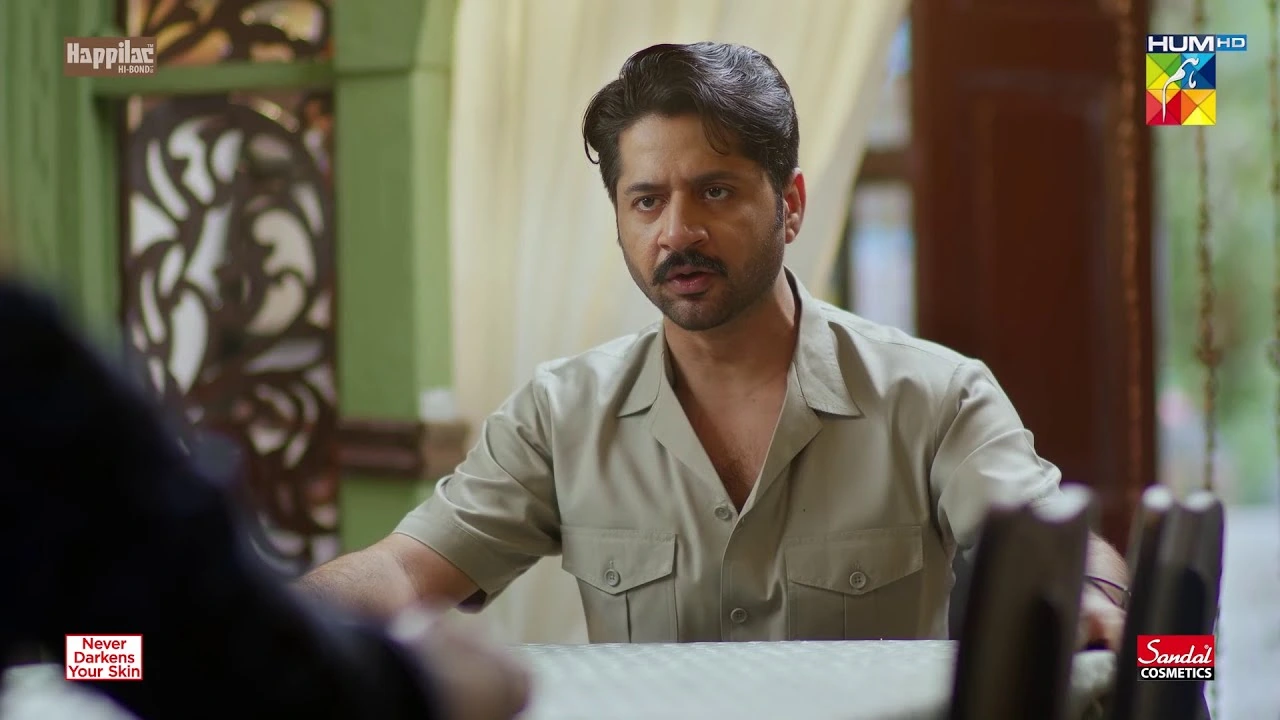
Pacing and Plot Twists
The pacing and plot twists in Namak Haram are among its most defining features, keeping viewers glued to their screens from the very first episode. While many dramas lose their momentum halfway through, Namak Haram maintains a rhythm that balances emotional storytelling with shocking turns. The Namak Haram Drama Review highlights that its pacing never feels forced or rushed; instead, it unfolds in a way that allows characters to grow naturally while surprising the audience with unexpected developments.
Balanced Narrative Flow
One of the most impressive aspects of Namak Haram is the director’s ability to strike a balance between fast-paced twists and slower, emotional arcs. The Namak Haram Drama Review notes that quiet, heartfelt moments—such as family conversations or scenes of inner conflict—are given just as much importance as explosive confrontations. This balance ensures that the story does not feel monotonous or overly dramatic, appealing to a wide range of audiences.
Building Suspense
Suspense is the backbone of every successful drama, and Namak Haram delivers it masterfully. Each episode ends on a note that compels the audience to tune in for the next installment. The Namak Haram Drama Review observes that cliffhangers are crafted with precision, revealing just enough to spark curiosity without spoiling future developments. This approach keeps the audience engaged week after week.
Twists That Shock Without Confusing
In some dramas, plot twists feel unnecessary or confusing, but Namak Haram handles them intelligently. The Namak Haram Drama Review emphasizes that the twists in this drama are deeply connected to the storyline and character arcs. Betrayals, hidden motives, and unexpected alliances are revealed at the right time, ensuring they feel believable rather than forced. These surprises keep the audience emotionally invested while reinforcing the drama’s central themes of loyalty, greed, and justice.
Character-Driven Surprises
Unlike dramas that rely solely on external shocks, Namak Haram uses its characters to drive the twists. For example, when a seemingly loyal character chooses betrayal, it feels organic because the groundwork has been carefully laid through subtle hints and foreshadowing. The Namak Haram Drama Review explains that this approach allows the audience to reflect on the complexity of human nature while still being taken aback by the reveal.
Maintaining Momentum
Pacing is not just about how fast events unfold but also about maintaining audience interest. The Namak Haram Drama Review notes that the drama cleverly alternates between moments of calm and intensity. After a major confrontation, viewers are given space to process emotions through reflective scenes, but before the tension dissipates completely, another twist reignites excitement. This cyclical rhythm keeps the momentum alive throughout the series.
Emotional Twists That Resonate
Not all plot twists in Namak Haram are about betrayal or shock—many are emotional revelations that strike a deep chord with viewers. Discovering hidden truths about relationships, uncovering motives behind certain sacrifices, or seeing unexpected acts of loyalty all create moments that leave the audience both surprised and touched. The Namak Haram Drama Review praises these softer twists for adding emotional richness to the story.
Avoiding Predictability
Predictability can ruin a drama, but Namak Haram skillfully avoids this pitfall. Even when viewers think they know what’s coming, the story often takes an alternate route. The Namak Haram Drama Review points out that the drama does not rely on clichés or repetitive tropes; instead, it refreshes familiar themes by presenting them in new ways. This unpredictability makes watching Namak Haram a thrilling experience.
Episode Structure and Timing
Each episode is structured to maximize impact. The Namak Haram Drama Review highlights that major twists often occur around the mid-point or climax of an episode, keeping tension high while ensuring the story progresses smoothly. The placement of these moments reflects careful planning, ensuring that no episode feels like filler.
Viewer Impact and Discussions
One of the key indicators of successful pacing and plot twists is the level of discussion among audiences. After every major reveal in Namak Haram, viewers take to social media to express shock, excitement, or anger. The Namak Haram Drama Review notes that this buzz contributes to the drama’s popularity, as fans speculate about what might happen next and analyze previous episodes for hidden clues.
Final Thoughts on Pacing and Twists
In conclusion, the pacing and plot twists in Namak Haram are masterfully executed, ensuring the drama maintains its grip on viewers from beginning to end. The Namak Haram Drama Review concludes that the careful balance between suspense, character-driven surprises, and emotional revelations makes the drama not only entertaining but also deeply thought-provoking. By avoiding predictability and delivering twists that enhance rather than distract from the story, Namak Haram secures its place as one of the most captivating dramas of recent times.
Strengths and Weaknesses
Every drama has its highs and lows, and evaluating them fairly is essential to give viewers a complete picture. In this Namak Haram Drama Review, we will explore the strengths and weaknesses of the drama, analyzing how well it performs in terms of story, direction, acting, and overall execution. While Namak Haram shines in many areas and has captivated its audience, it also has certain limitations that cannot be ignored.
Strengths of Namak Haram
1. Strong Performances by the Cast
One of the biggest strengths of Namak Haram lies in its cast. The actors bring their characters to life with depth and authenticity. Their emotional expressions, subtle gestures, and chemistry on screen make the audience feel connected to the story. The Namak Haram Drama Review praises the lead actors for capturing the complexity of their roles, portraying loyalty, betrayal, and inner conflict convincingly. Even the supporting characters contribute significantly, making the drama rich and layered.
2. Engaging Storyline
The drama offers a gripping storyline that keeps the audience invested. The Namak Haram Drama Review notes that the narrative balances family drama, emotional struggles, and moral dilemmas with unexpected twists. The story explores themes of loyalty, greed, justice, and family bonds, resonating with a wide audience base.
3. Realistic Themes and Relatability
Unlike overly glamorous or unrealistic portrayals, Namak Haram connects with its audience by addressing issues people face in real life. Themes such as betrayal by loved ones, struggles for justice, and family disputes strike a chord with viewers. According to the Namak Haram Drama Review, this relatability is one of the reasons why the show has become so popular.
4. Direction and Cinematography
The direction of Namak Haram deserves applause. Every scene is shot with precision, making sure the emotional intensity of the drama comes through. The Namak Haram Drama Review highlights the creative camera angles, attention to detail, and strong pacing that enhance the storytelling. The cinematography adds depth and makes the drama visually appealing.
5. Perfect Pacing and Suspense
As already discussed in the pacing section, one of the key strengths of Namak Haram is how it balances suspense with emotional storytelling. The Namak Haram Drama Review emphasizes that the drama never feels rushed or too slow, which is why audiences remain engaged throughout.
6. Audience Engagement and Popularity
The buzz surrounding Namak Haram on social media shows how impactful the drama has been. The Namak Haram Drama Review notes that fans continuously discuss each episode, speculate about twists, and share their opinions. This level of audience engagement adds to the drama’s success.
Weaknesses of Namak Haram
1. Occasional Predictability
While Namak Haram avoids clichés most of the time, there are a few moments where the plot becomes somewhat predictable. The Namak Haram Drama Review acknowledges that certain storylines could have been handled with more originality. A few twists follow the usual tropes of Pakistani dramas, slightly reducing the element of surprise.
2. Over-Emphasis on Emotional Drama
In some episodes, the emotional confrontations stretch longer than necessary. While these scenes are powerful, the Namak Haram Drama Review points out that they occasionally slow down the narrative. Shortening some of these sequences could have maintained the pace more effectively.
3. Limited Character Development for Side Roles
Although the lead characters are well-developed, certain secondary characters don’t receive enough attention. The Namak Haram Drama Review highlights that if these roles were fleshed out more, they could have added additional layers to the story. Some characters seem underused, which is a missed opportunity.
4. Repetition of Certain Themes
A slight weakness of Namak Haram is the repetition of themes like loyalty versus betrayal. While they are central to the plot, at times the drama revisits these ideas too frequently. According to the Namak Haram Drama Review, a little more diversity in subplots could have strengthened the narrative further.
5. High Emotional Intensity Might Not Suit Everyone
For audiences who prefer lighthearted or comedic dramas, Namak Haram might feel too intense. The Namak Haram Drama Review observes that the heavy emotional tone can be overwhelming for some viewers, even though it appeals strongly to those who enjoy deep, dramatic storytelling.
Final Thoughts on Strengths and Weaknesses
Overall, the strengths of Namak Haram far outweigh its weaknesses. The strong performances, engaging storyline, impactful direction, and relatable themes make it one of the most memorable dramas of recent times. While predictability in a few scenes and underdeveloped side characters are noticeable flaws, they do not significantly reduce the drama’s impact. The Namak Haram Drama Review concludes that these minor shortcomings are overshadowed by the show’s emotional power, suspenseful twists, and overall execution.
In short, Namak Haram delivers a drama experience that stays with viewers long after the final episode, making it a must-watch for anyone who appreciates thought-provoking Pakistani dramas.
Audience Reception
One of the most reliable ways to judge the success of a television serial is to see how audiences respond to it. In this Namak Haram Drama Review, it is impossible to overlook the overwhelming reception the drama has received from viewers both in Pakistan and abroad. The drama did not only attract attention because of its cast or promotional campaigns; it maintained consistent interest episode after episode, proving its ability to keep audiences emotionally invested.
Initial Reactions to Namak Haram
When Namak Haram first aired, expectations were high due to its star-studded cast and the reputation of Hum TV for producing quality dramas. The Namak Haram Drama Review notes that audiences immediately tuned in out of curiosity, eager to see whether the serial would live up to the hype. Social media platforms like Twitter, Facebook, and Instagram were flooded with discussions, memes, and predictions after the first few episodes, showcasing the instant connection the drama managed to create with viewers.
The opening week saw positive reviews praising the strong dialogues, emotional appeal, and compelling performances of the lead actors. Fans admired how the drama started with intensity instead of a slow buildup, a factor that encouraged audiences to stick with it from the beginning.
Ongoing Popularity and Weekly Discussions
A hallmark of the drama’s success is its ability to keep audiences engaged week after week. Every new episode sparked conversations online, with fans dissecting plot twists and debating character motives. The Namak Haram Drama Review highlights that this type of weekly engagement is a clear indicator of the drama’s popularity, as people eagerly anticipated the next episode instead of losing interest halfway.
The suspenseful storytelling and relatable family conflicts gave audiences plenty to discuss. Online fan groups and drama review pages frequently ran polls about favorite characters, most shocking betrayals, and best episodes. This interaction turned Namak Haram into more than just a TV serial—it became a shared cultural experience.
Ratings and TRP Success
Ratings, often measured through TRP (Television Rating Points), provide another way to measure a drama’s reception. The Namak Haram Drama Review observes that Namak Haram consistently performed well in its time slot, often trending above other ongoing serials. This success was not limited to Pakistani audiences; overseas viewers from the UK, UAE, and North America also followed the drama religiously through streaming platforms and YouTube uploads.
The strong TRPs reflect how the drama appealed to both masses and niche viewers. It offered the emotional drama that traditional audiences enjoy, while also maintaining enough suspense and realism to attract younger, modern viewers.
Social Media Buzz
One of the most notable aspects of Namak Haram’s reception is the sheer amount of buzz it created on social media. The Namak Haram Drama Review notes that hashtags related to the drama frequently trended on Twitter after new episodes aired. Fans wrote detailed analyses, posted reaction videos on TikTok and YouTube, and shared emotional clips on Instagram reels.
Many fans praised the lead actors’ performances, while others passionately discussed the moral dilemmas presented in the story. Interestingly, some viewers even related the drama’s themes of betrayal, greed, and family politics to real-life experiences, showing how deeply it resonated with them.
Audience Criticism
While the drama enjoyed massive popularity, no serial is free from criticism. The Namak Haram Drama Review found that some audiences felt certain episodes dragged due to long emotional confrontations. A few viewers also believed that the story occasionally leaned on familiar tropes of Pakistani dramas, such as exaggerated family conflicts.
However, these criticisms were generally overshadowed by the positive feedback. Even those who raised complaints admitted that they continued watching because the drama remained compelling overall. In fact, the small flaws became conversation starters, fueling more debates about what could have been improved.
International Viewership
One impressive achievement of Namak Haram is its ability to attract international audiences. Pakistani dramas often appeal to the South Asian diaspora, but Namak Haram went further by gaining attention from non-South Asian viewers who enjoy high-quality storytelling. According to the Namak Haram Drama Review, the drama’s universal themes of trust, betrayal, and family dynamics allowed it to resonate with diverse cultures, making it accessible to a broader audience.
Overall Audience Sentiment
Taking all feedback into account, the overall sentiment toward Namak Haram is overwhelmingly positive. The Namak Haram Drama Review concludes that audiences not only enjoyed the drama but also engaged with it on a deeper emotional level. The show succeeded in sparking discussions, evoking empathy, and keeping people invested until the final episode.
Viewers appreciated that the drama did not shy away from portraying uncomfortable truths about human nature, while still delivering a gripping storyline. The mix of emotional depth, suspense, and strong performances ensured that audiences remained loyal throughout its run.
Final Verdict on Audience Reception
Ultimately, the reception of Namak Haram proves that it has made a lasting mark in the world of Pakistani television. While minor criticisms exist, the sheer scale of audience engagement, consistent ratings, and passionate discussions online demonstrate the drama’s massive success. The Namak Haram Drama Review emphasizes that this reception is a testament to the hard work of the entire production team, from the actors and directors to the writers and crew.
In summary, Namak Haram is not just another drama—it is an experience that brought people together, made them think, and gave them something worth discussing long after the episodes aired. Its audience reception solidifies its place as one of the most impactful dramas of recent years.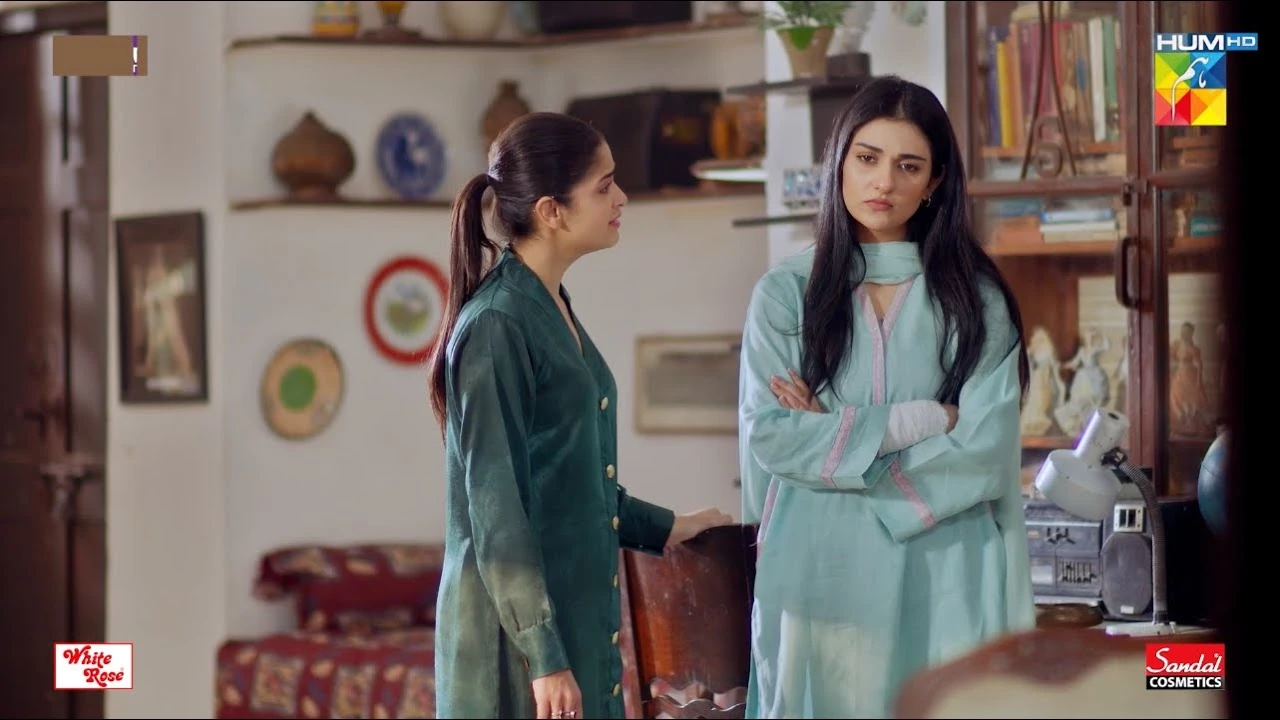
Final Verdict
Every drama leaves its audience with a lasting impression—sometimes positive, sometimes disappointing. In the case of Namak Haram, the overall impact is undoubtedly strong. After carefully analyzing its storyline, performances, direction, and public reaction, the Namak Haram Drama Review concludes that this serial has set a high standard for storytelling in Pakistani television. The final verdict highlights the strengths that made it successful while also acknowledging the areas where it could have been improved.
A Powerful Blend of Story and Emotions
One of the main reasons why Namak Haram captured attention was its emotionally charged story. The drama seamlessly combined themes of loyalty, betrayal, justice, greed, and family politics into a single narrative that felt relatable to audiences. The Namak Haram Drama Review notes that the scriptwriters deserve credit for not only creating drama but also weaving moral lessons into the story.
Viewers did not just watch the serial passively; they experienced it deeply. The betrayals hurt, the moments of loyalty inspired, and the struggles for justice kept everyone invested. This balance of emotions is why the drama will be remembered long after its final episode aired.
Strong Performances Elevated the Drama
Another standout element of Namak Haram was its cast. The Namak Haram Drama Review emphasizes that the actors went beyond surface-level performances, delivering depth and authenticity to their characters. Whether it was the protagonist’s emotional turmoil, the antagonist’s cunning schemes, or the side characters’ personal struggles, each performance left an impact.
The leads carried the drama with their charisma and emotional strength, but supporting actors also added richness to the narrative. Together, the cast turned what could have been a typical family drama into a masterpiece filled with memorable scenes.
Direction and Technical Brilliance
Direction plays a crucial role in shaping how a story is told, and Namak Haram benefited greatly from skillful direction. The Namak Haram Drama Review found that the director paid careful attention to pacing, cinematography, and scene transitions. Each episode felt polished and professional, avoiding the amateur mistakes often seen in lower-budget productions.
The visual presentation—camera angles, lighting, and set designs—added to the drama’s appeal. This technical finesse made it not just a good story but also a visually engaging production, further enhancing its audience impact.
Strengths That Outshine Weaknesses
Like every drama, Namak Haram had its share of weaknesses. Some episodes dragged due to lengthy emotional confrontations, and a few subplots felt slightly predictable. However, these shortcomings never overshadowed the bigger picture. The Namak Haram Drama Review observes that the strengths—powerful acting, emotional depth, and relatable themes—far outweighed any weaknesses.
The minor flaws even contributed to conversations among fans, who debated how the story could have been improved. Instead of pushing viewers away, these imperfections kept audiences talking, which is itself a sign of success.
Audience Loyalty and Engagement
Perhaps the biggest achievement of Namak Haram is the loyalty it inspired among viewers. The drama not only delivered entertainment but also created a sense of community. Fans waited eagerly each week for new episodes, discussed predictions online, and shared emotional reactions on social media.
The Namak Haram Drama Review concludes that audience engagement is a true measure of success, and Namak Haram excelled in this area. Its ability to keep people emotionally invested for weeks proves that it achieved its primary goal as a television serial.
Cultural and Social Impact
Beyond entertainment, Namak Haram also carried social relevance. Its exploration of greed, betrayal, and moral dilemmas reflected real-world issues that many families face. Viewers related the story to their own lives, which made the drama more than just fiction. According to the Namak Haram Drama Review, this cultural connection is what differentiates a good drama from a great one.
By sparking conversations about morality, family values, and justice, Namak Haram contributed meaningfully to the discourse around Pakistani society. This impact ensures that the drama will be remembered long after newer serials take its place on television.
A Drama Worth Remembering
After evaluating every element, the final verdict is clear: Namak Haram is one of the standout dramas of its time. It combined powerful storytelling with memorable performances, strong direction, and consistent audience engagement. While it was not flawless, its strengths easily overshadowed any shortcomings.
The Namak Haram Drama Review concludes that the serial has earned its place as a must-watch drama for fans of Pakistani television. Whether you’re interested in emotional depth, thrilling twists, or moral lessons, Namak Haram delivers on every front.
Closing Thoughts
In the ever-growing world of Pakistani dramas, few serials manage to balance entertainment with substance. Namak Haram is one of those rare productions that did both. Its success lies not just in ratings but in the emotional journey it provided to its viewers.
The Namak Haram Drama Review confidently declares that Namak Haram is more than just a passing television serial—it is a cultural phenomenon that has left an enduring impact. For anyone searching for a drama that entertains, teaches, and resonates on a personal level, Namak Haram is undoubtedly worth the watch.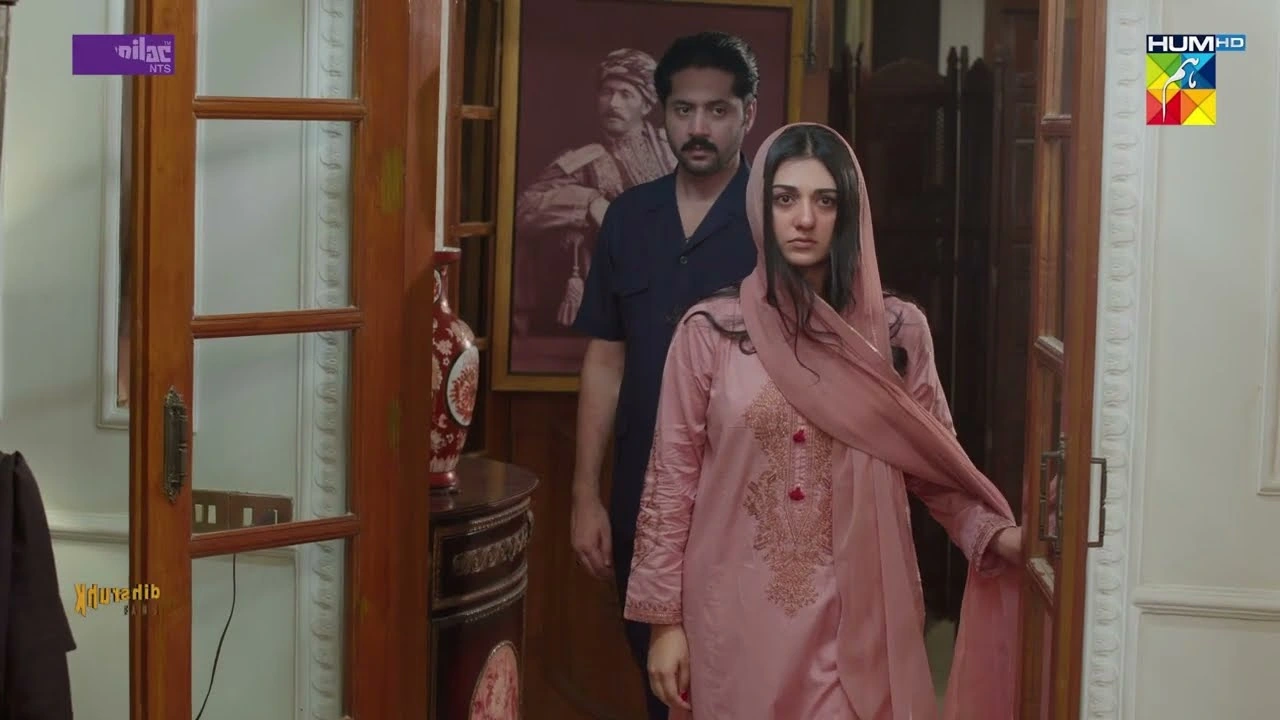
Conclusion: Wrapping Up the Namak Haram Drama Review
Every story has an ending, and every review needs closure. As we bring this Namak Haram Drama Review to a conclusion, it becomes clear that the drama has left behind more than just episodes of entertainment—it has created an experience that will be remembered by its audience for years. Wrapping up the key points, this review highlights why Namak Haram stood out among Pakistani serials and how it managed to strike a perfect balance between drama, emotion, and meaningful storytelling.
Revisiting the Emotional Journey
From the very first episode, Namak Haram took viewers on an emotional ride filled with suspense, moral dilemmas, and heartfelt moments. The Namak Haram Drama Review shows how this journey was not just about watching characters play out a script, but about feeling their struggles, victories, and betrayals. The drama made its audience reflect on human relationships, greed, loyalty, and justice in a way that felt both real and relatable.
Every twist added depth, every betrayal hurt, and every triumph of justice brought satisfaction. It is this emotional connection that sets Namak Haram apart from countless other dramas, making it a significant contribution to Pakistani television.
A Reflection of Real Life
Another strong conclusion drawn in the Namak Haram Drama Review is the drama’s ability to mirror society. It didn’t just tell a fictional tale; it shed light on real issues faced by families, from financial greed to broken trust and the fight for fairness. By holding up this mirror, Namak Haram allowed its audience to reflect on their own choices, relationships, and values.
This is where the drama’s strength lies—it entertained while also teaching lessons. That combination ensured it wasn’t just consumed and forgotten, but remembered and discussed.
Strengths That Define Its Legacy
Throughout this Namak Haram Drama Review, the same strengths reappear: powerful acting, relatable themes, high-quality direction, and emotional storytelling. These strengths created a strong foundation that made the drama stand out. While some pacing issues and predictable moments existed, they did little to damage the overall appeal.
Instead, the drama’s legacy will be remembered for the way it blended emotion with reality and storytelling with lessons. The actors, writers, and director worked in harmony to give the audience an experience worth investing in.
Lessons That Stay Behind
A true drama does not end when the last episode airs; it continues to live on through the lessons it leaves behind. The Namak Haram Drama Review highlights loyalty, betrayal, justice, and family dynamics as the central themes that struck a chord with the audience.
These are not just fictional conflicts but real-world challenges. By weaving them into a compelling narrative, Namak Haram reminded viewers of the importance of staying true to one’s values, resisting greed, and standing up for justice even in the face of betrayal. These lessons are part of the drama’s enduring charm.
Audience Love and Cultural Impact
The conclusion would be incomplete without acknowledging the audience. The Namak Haram Drama Review shows how the viewers themselves became part of the story by passionately discussing the plot twists, analyzing characters, and relating them to their own lives. Their loyalty and excitement week after week gave the drama its strength and ensured its place among top serials.
More than ratings, Namak Haram will be remembered for its cultural impact. It influenced conversations in households, online discussions, and even debates about morality and justice. Few dramas achieve this level of connection, and Namak Haram stands proudly among them.
Why Namak Haram Will Be Remembered
Wrapping up the Namak Haram Drama Review, one thing is clear—this was not just another drama. It was a story that touched hearts, challenged minds, and delivered lessons while entertaining millions. Its strong performances, gripping storytelling, and meaningful themes make it a drama worth revisiting even years from now.
While other serials may come and go, Namak Haram will remain etched in the memories of those who watched it because of the emotional weight it carried and the values it highlighted.
Final Closing Thoughts
In conclusion, the Namak Haram Drama Review finds that this serial successfully achieved everything a great drama should. It entertained, it educated, and it inspired. Despite minor flaws, its strengths shone brighter, leaving behind a drama that resonated with audiences on multiple levels.
If you’re someone who values strong storytelling, relatable characters, and meaningful life lessons, then Namak Haram is not just a drama—it’s an experience. Wrapping up this review, one can confidently say that Namak Haram deserves its place among the finest productions of recent years and will continue to be celebrated for its timeless relevance and emotional depth.
Thanks for Visiting

FAQ
1. What is Namak Haram drama about?
Namak Haram drama is a powerful story about loyalty, betrayal, greed, and justice. The Namak Haram Drama Review highlights how it portrays family struggles and real-life lessons through emotional storytelling.
2. Who are the main cast members of Namak Haram?
The main cast of Namak Haram includes talented actors who brought depth and realism to their roles. In the Namak Haram Drama Review, their performances are praised for making the story impactful and engaging.
3. What lessons can we learn from Namak Haram?
The drama teaches important life lessons about trust, the dangers of greed, the strength of loyalty, and the pursuit of justice. According to the Namak Haram Drama Review, these themes are what connect the drama to real life.
4. Is Namak Haram worth watching?
Yes, Namak Haram is definitely worth watching. As explained in the Namak Haram Drama Review, the drama offers gripping storytelling, relatable themes, and strong performances that keep viewers emotionally invested.
5. What makes Namak Haram different from other Pakistani dramas?
Unlike many serials, Namak Haram blends entertainment with real-life values. The Namak Haram Drama Review shows how its mix of suspense, emotional depth, and moral lessons make it stand out.



